
For queries regarding our curriculum please contact:
Miss C Farrelly, Deputy Headteacher
cfarrelly@mountcarmelhigh.lancs.sch.uk
Curriculum Vision
The mission statement of our school states that;
We are an ambitious Family of Faith and Learning
Our work extends beyond the classroom;
a commitment to curiosity and creativity everywhere.
Every person is encouraged and supported to reach the widest horizons as a unique, courageous and resilient child of God.
With this as our core principle we give all of our pupils every opportunity to achieve the highest possible standards in all that they do and, as such, we offer a broad and balanced curriculum which aims to promote the school’s Christian values through the word of God and develop the whole child, both academically and to provide them with the skills that prepare them for the next stage in their education.
The school, both through its taught curriculum and extra-curricular provision, aims to develop pupils’ key attributes such as self-belief, ambition, persistence, resilience and a can-do attitude towards the challenges that pupils experience at school. British and moral values, rooted in the Catholic faith, are equally promoted and encourage a sense of empathy, acceptance and tolerance of others.
Such principles aim to serve pupils in a way that will give them the best chances for success in the next stage of their education and then beyond, promoting their development as a whole-person ready and able to make a positive contribution to society.
The curriculum offer to our pupils provides a range of courses appropriate to individual needs of learners, supported by an extensive extra-curricular provision. It ensures that pupils acquire knowledge, understanding and skills in all aspects of their education including linguistic, mathematical, technical, human and social, physical and artistic learning.
The curriculum aims to bring about an enjoyment of learning and promote a sense of achievement. It also contributes to pupils’ behaviour and welfare; including their physical, mental and personal wellbeing, safety, spiritual, moral, social and cultural development.
Curriculum Intent
Curriculum Intent
Religious Education
The nature, purpose, and scope of Religious Education at Mount Carmel reflect the Religious Education Curriculum Directory for Catholic Schools. The primary aim is to deepen pupils' knowledge and understanding of the Christian message, ensuring it is accessible to all students within our Catholic school community. At Mount Carmel, Religious Education is regarded as the “core of the core curriculum.”
Religious Education is taught from Years 7 to 11 and accounts for 10% of the overall curriculum time in each year group. This is complemented by an extensive Chaplaincy Programme, which celebrates the liturgical calendar of the Catholic Church while also recognising and honouring other world religions, particularly Islam, due to the significant number of Muslim pupils on the school roll.
Relationships and Sex Education (RSE) is delivered through Religious Education, PSHCE, science, and drama lessons at both Key Stage 3 and Key Stage 4. Our approach is fully in line with the Catholic Education Service’s model policy, which includes the use of TenTen Education resources. We are proud to report that no parents have requested to withdraw their children from any part of the RSE curriculum.
The Religious Education Directory, which is set to be fully implemented for Key Stage 3 from September 2025, has already been introduced in Years 7 and 8. Additionally, all pupils will study an approved GCSE during Years 10 and 11, with a focus on Catholic Christianity, Judaism, and Catholic approaches to philosophy and ethics.
Withdrawal from Religious Education, Collective Worship, and Sex Education
Parents have the statutory right to withdraw their child from Religious Education (RE), Collective Worship, and aspects of Sex Education that are not part of the National Curriculum. However, please note that any teaching of sexual reproduction within the National Curriculum is exempt from this right, and pupils are required to participate in the Relationships aspect of the Relationships and Sex Education (RSE) curriculum.
Any request for withdrawal must be made in writing to the Headteacher. Upon receiving a request, the school will arrange a meeting to discuss the decision and ensure that parents fully understand the implications.
During any period of withdrawal, the school will provide adequate and safe supervision for the pupil. However, please be aware that alternative work or assessments will not be provided during this time.
For further information or to discuss any concerns, please contact our Curriculum Leader for R.E. and R.S.E.
Curriculum Intent
KS3 Curriculum 2025-26
In Years 7, 8 and 9, all pupils follow the full national curriculum, which is delivered through thoughtful and coherent selection and sequencing, building over a 3-year Key Stage 3 curriculum. The design and delivery of the national curriculum encourages pupils to develop independence both in and out of school and enables pupils to develop their learning from Key Stage 2, adding to their cultural capital and building a strong foundation of knowledge and skills to prepare them for Key Stage 4. The delivery of the national curriculum across all 3 years is deliberate to ensure that we keep the curriculum as wide as possible, for as long as possible, ensuring that pupils have an opportunity to know more and remember more. In order to best meet the needs of our pupils and to ensure they have a full 2-year Key Stage 4 curriculum, in core subjects, Year 9 pupils follow some GCSE transition units in English, maths, science and RE. Pupils with SEND are taught the full curriculum and receive additional support as is appropriate for their needs. (See SEND section of the school website).
As part of fulfilling the national curriculum, pupils are encouraged to read. Reading time is built into the English curriculum at Key Stage 3, with 1 lesson per week in the library. In addition to this, pupils in Years 7-10 have a dedicated form period that is used to build literacy skills. For more information on the form time literacy, please visit our literacy page.
Pupils are placed in sets in Year 7 based on Key Stage 2 scale scores in English and maths. Pupils are taught in sets according to their ability in each subject and the school setting and banding policy ensures that there are opportunities for pupils to be moved between sets and bands, depending on their progress (please see school ‘Setting and Banding Policy’). Year groups 7, 8 and 9 are split into M band (4 sets) and C band (2 or 3 sets) depending on the subject. We aim that the curriculum is taught as much as possible by specialist staff. Non-specialists are well supported by Curriculum Leaders.
Setting arrangements at both Key Stage 3 and Key Stage 4 (core subjects only at Key Stage 4)
| Setting arrangements at KS3 & KS4 | |
| M1 | Upper ability sets |
| M2 | |
| M3 | Middle ability sets |
| M4 | |
| C1 | Lower ability sets |
| C2 | |
The following tables illustrate the number of lessons available for each subject at Key Stage 3. The school timetable is organised over a two week cycle with 50 x 1 hour lessons.
| Curriculum for Year 7 (Key Stage 3) | |||||||||||||
| Subject | En | Ma | RE | Sc | Hi | Gg | Cp | Sp | Mu | Dr | PE | Art & DT | PSHCE |
| No. of lessons | 8 | 8 | 5 | 6 | 4 | 4 | 2 | 4 | 1 | 1 | 3 | 3 | 1 |
| Curriculum for Year 8 (Key Stage 3) | |||||||||||||
| Subject | En | Ma | RE | Sc | Hi | Gg | Cp | Sp | Mu | Dr | PE | Art & DT | PSHCE |
| No. of lessons | 7 | 8 | 5 | 7 | 4 | 4 | 2 | 4 | 1 | 1 | 3 | 3 | 1 |
| Curriculum for Year 9 (Key Stage 3) | |||||||||||||
| Subject | En | Ma | RE | Sc | Hi | Gg | Cp | Sp | Mu | Dr | PE | Art & DT | PSHCE |
| No. of lessons | 7 | 8 | 5 | 7 | 4 | 4 | 2 | 4 | 1 | 1 | 3 | 3 | 1 |
Curriculum Intent
KS4 Curriculum 2025-26
We remain ambitious for all our pupils at Key Stage 4, ensuring that pupils follow a broad and balanced curriculum while making appropriate adjustments that are in the best interests of pupils if necessary. During Key Stage 4, pupils work towards national qualifications – in the main these are GCSE qualifications, however greater breadth to the curriculum has been provided with a small number of Technical Awards / Cambridge Nationals and BTECs, which are all equivalent to GCSEs. The curriculum is carefully designed to ensure that all pupils have the knowledge, skills, cultural capital and qualifications to ensure a smooth transition to Key Stage 5.
All pupils follow a core curriculum made up of both GCSE and non-examined subjects. Pupils must then make a humanities choice (History or Geography) and complete their individual curriculum paths according to their band as detailed in the following option pathways*.
Year 10 M-Band Pathway (2025)

Year 10 C-Band Pathway (2025)

*Each year the pathways are reviewed and may change.
The subjects that are currently offered to pupils in Key Stage 4 include art, computer science, design technology (resistant materials, food and nutrition), health and social care, iMedia, Spanish (C Band), geography, history, performing arts and PE. Option subjects are allocated 6 lessons out of a 50 period, two-week cycle. The Key Stage 4 curriculum is taught in full by specialist staff.
We have recruited strongly in Modern Foreign Languages and consequently we have designed a curriculum that will secure the Ebacc entry expectations as outlined by the DfE whilst meeting the high expectations we hold for our pupils. Although our curriculum has been developed around securing the Ebacc for pupils, we continue to ensure that all pupils have a broad and balanced curriculum.
Pupils are taught in M and C band sets in maths, English, science and RE. Movement is determined by progress (see ‘Setting and Banding Policy’). In option subjects, pupils are predominantly taught in mixed ability groups, but are set where possible. In exceptional circumstances, a very small number of SEND pupils follow an alternative bespoke Key Stage 4 curriculum that is designed to meet their individual needs and is clearly in the best interest of the pupils.
In addition to the curriculum allocations shown below, PSHCE, computing and CEIAG is delivered through a series of drop-down days and workshops. Coverage of CEIAG at Key Stage 4 is also strong and tracked through the Gatsby Benchmarks.
The following table shows the curriculum time allocated at Key Stage 4
| Curriculum for Year 10 and Year 11 (Key Stage 4) | |||||||||
| Subject | Ma | En | Sc | Re | PE | PSHCE | Option Block A |
Option Block B |
Option Block C |
| Allocation of lessons per x2 week cycle |
7 | 8 | 9 | 5 | 2 | 1 | 6 | 6 | 6 |
Year 10 option subjects 2025-2026
| OPTION A | OPTION B | OPTION C |
| Geography (Group 1) | Health & Social Care (BTEC L2) | Art |
| Geography (Group 2) | Physical Education | Computer Science |
| Geography (Group 3) | Spanish (Group 1) | Design Technology |
| History (Group 1) | Spanish (Group 2) | Food & Nutrition |
| History (Group 2) | Spanish (Group 3) | Physical Education |
| History (Group 3) | Spanish (Group 4) | Performing Arts |
| History (Group 4) | Spanish | |
| Triple Science |
Year 11 option subjects 2025-2026
| OPTION A | OPTION B | OPTION C |
| Geography (Group 1) | Health & Social Care (BTEC L2) | Art |
| Geography (Group 2) | History | Computer Science |
| Geography (Group 3) | Health & Social Care (BTEC L2) | Design Technology |
| History (Group 1) | iMedia (CAMNAT) | Food & Nutrition |
| History (Group 2) | Performing Arts | Health & Social Care (BTEC L2) |
| History (Group 3) | Physical Education | Spanish (Group 1) |
| Spanish | Spanish (Group 1) | Spanish (Group 1) |
| Spanish (Group 2) |
Extra Curricular / enhancements
In addition to the academic curriculum there are several enhancements that enrich the curriculum to develop pupils’ skills and interests in a vast array of areas. For example, after school and lunchtime sporting activities include football, netball and badminton teams, handball, athletics, cricket club, gymnastics, archery, dance club, fitness clubs, and sports leadership, to mention a few. In addition, there are chess, science, music clubs, GIFT team, school productions and Duke of Edinburgh (for Year 9 and Year 10 pupils), this is not a definitive list. We have an excellent performing arts department that regularly prepares a range of performances at partnership, whole school and community events.
Curriculum Topics Overview
Subject Information
Art & Design
“In the beginning God created the heaven and the earth” Genesis 1:1
Vision
With Christ at the centre, the Art department at Mount Carmel aims to provide all pupils with a widely creative experience which broadens their horizons and gives them opportunities and skills for life. By studying GCSE Fine art, students leave Mount Carmel with a competency in the handling of artistic material, analytical skills and the ability and desire to think and produce outside of the box.
We provide opportunities for pupils of all abilities to develop the necessary skills in researching, analysing, developing, refining, and producing to meet the requirements of the national curriculum and the demands of key stage 4 fine art specification and we are committed to ensuring that each pupil meets their full potential by providing an ambitious learning environment.
We endeavour to instil a lifelong passion for art into the students at Mount Carmel and take pride in creating bridges for further education and work within the creative industry.
Intent KS3
At Mount Carmel pupils receive 20 lessons of Art & Design over 13 weeks. In addition to lessons, we supplement curriculum time with support, intervention, competitions and enrichment opportunities, to broaden our pupils' experiences.
KS3 curriculum:
At Mount Carmel, pupils in keys stage 3 study an ambitious art curriculum that covers a wide range of skills. The students complete three mini projects, and they enjoy this broad and fast paced way of working. We aim to provide pupils with the knowledge and skills needed to understand and interpret a variety of artistic techniques and movements.
KS3 pupils at Mount Carmel will study the topics of:
Year 7: Still life, Portraiture and Viewpoints
Year 8: Pop art, Mexican day of the dead and Natural forms
Year 9: Identity (one longer project)
How will the subject be assessed?
At Key Stage 3, pupils are continuously given verbal feedback during lesson time on their written and practical work. They are formally assessed at the end of each rotation. Pupils also have the opportunity to self evaluate their practical outcomes. Homework is set on Edulink as per the school homework calendar.
Intent KS4
KS4 curriculum:
At key stage 4, all pupils can explore art in their own way. We all start on the same teacher led projects, then students are encouraged to make their own choices and independence is encouraged to foster their own individual artistic talents. The structure of the course is as follows:
Coursework project 1: Natural forms
Coursework project 2: Expression
Coursework project 3: Culture
Externally set assignment (exam): choice of 7 themes to explore
How will the subject be assessed?At key stage 4, assessment is ongoing through class work and homework tasks. We also complete interim assessments for each assessment objective:
A01: Research and investigation
A02: Media and material exploration
A03: Drawing, recording and annotation
A04: Creating an outcome (Final piece)
Enrichment and / or extra curricular activities
The art department offers the following enrichment and extra-curricular activities:
- Trips
- Workshops
- Exhibitions
- Lunchtime clubs
Next steps (College, University, career)
What can the subject prepare me for?
The ability to think and produce in our world is highly regarded by employers and further education settings and GCSE art offers a great bridge into the gateway of the massive creative industry.
Artistic skills can be used in almost all areas of work, including:
- Architecture
- Interior/ home/ furniture design
- Graphic design and tattoo design
- Beauty and makeup artist
- Fashion and costume design
- Artist in residence
Additional resources
https://www.aqa.org.uk/subjects/art-and-design/gcse/art-and-design-8201-8206/subject-content/fine-art
https://www.bbc.co.uk/bitesize/subjects/z6hs34j
Computing
“For which of you, desiring to build a tower, does not first sit down and count the cost, whether he has enough to complete it? Otherwise, when he has laid a foundation and is not able to finish, all who see it begin to mock him, saying, ‘This man began to build and was not able to finish.” Luke 14:28-32
Intent
The computing department at Mount Carmel aims to ensure that pupils become digitally literate. Pupils are taught to be able to use, and express themselves and develop their ideas through, information and communication technology at a level suitable for the future workplace, and as active participants in a digital world. At Mount Carmel we aim to develop responsible, competent, confident and creative users of information and communication technology.
Problem solving is at the heart of the computing curriculum at Mount Carmel. Pupils are taught to use computational thinking and creativity in ways that are transferable to almost any career. Pupils learn to analyse problems in computational terms, and, have repeated practical experience of writing computer programs in order to solve such problems. This ensures that pupils can evaluate and apply information technology, including new or unfamiliar technologies, analytically to solve problems.
Implementation KS3
At Mount Carmel, pupils receive one hour of computing per week in key stage 3 and three hours per week at key stage 4 if they choose to study computer science or creative iMedia.
KS3 curriculum
In KS3 pupils study a broad curriculum that covers key elements of computer science, digital literacy and e-safety. These topics are carefully mapped against the national curriculum to give full and even coverage. The curriculum is designed to prepare students for the digital world, whether or not they continue to study a computing related subject at KS4.
Units taught:
| Year 7 | Year 8 | Year 9 |
| Digital Literacy | Data Representation | Under the Hood 2 |
| Under the Hood | Programming in Python 2 | Algorithmic Thinking |
| Programming in Scratch | Interactive Multimedia Product | Cyber Security |
| E-safety/Autumn Retrieval | E-Safety/Autumn Retrieval | Programming 3/Autumn Retrieval |
| Programming in Python | The Media Industry | Digital Graphics: Virtual Tech |
| Digital Graphics: Theme Park | Digital Graphics: Travel Guide | Interactive Multimedia Product: Sports |
How will the subject be assessed?
At key stage 3, assessment takes place formatively through mini assessment tasks, observation and question and answer sessions. Repetition is built into the curriculum through mid-unit low stakes tests and starter activities. Summative assessment takes place half termly in the form of end of unit assessments. Assessments mirror as closely as possible those required at GCSE level.
Implementation KS4
KS4 curriculum
At KS4, pupils can choose to study GCSE Computer Science. In Computer Science, you will learn the core principles such as abstraction, decomposition, logic, algorithms, and data representation. You will also further develop your skills from KS3 to analyse and solve problems by designing, writing, and debugging programs both on the computer using a Python IDE and during written tasks. Whilst Computer Science offers the chance to use computers during programming lessons, most of the learning will be completed in books.
Computer Science encourages creative, innovative, and logical thinking. You will explore the components of digital systems, how they interact, and the effects of digital technology on individuals and society. Additionally, you will use mathematical skills to support your understanding of Computer Science concepts. Due to the high amount of mathematical content, it is advisable that if you wish to study this course that you are confident and capable in maths. Above all else however you should be enthusiastic, able to persevere with challenging tasks and enjoy solving problems.
This course will develop your critical thinking, analysis, and problem-solving skills through the study of computer programming, giving you a fun and interesting way to develop these skills, which can be transferred to other subjects and even applied in day-to-day life. In this respect, the course provides excellent preparation if you want to study or work in areas that rely on these skills, especially where they are applied to technical problems. These areas include engineering, financial and resource management, science and medicine.
How will the subject be assessed?
At key stage 4, assessment in both courses is ongoing through regular homework, in class and end of unit summative assessments. Recall starter activities are used commonly to reinforce knowledge and to prepare students for examinations.
Computer science is a linear course culminating in 2 x 90 minute examinations each representing 50% of the overall grade.
Enrichment and / or extra curricular activities
The computing department offers the following enrichment and extra-curricular activities:
- Gaming club
- Girls Computing Club
- Breakfast and after school revision sessions (year 10/11)
Impact
Next steps (College, University, career)
What can the subject prepare me for?
We live in a digital age and almost all employers require their employees to be digitally literate. Students often progress to study A-level computer science or opt for more vocational courses in game design, web design or digital photography.
Computing skills can be used in almost all areas of work, including:
- Business
- Education
- Science
- Engineering
- Media and Marketing
Additional resources:
https://www.senecalearning.com
GCSE computer science specification:
https://www.ocr.org.uk/Images/558027-specification-gcse-computer-science-j277.pdf
Design Technology
"For every house is built by someone, but God is the builder of everything.” Hebrews 3:4
Vision
The design and technology department at Mount Carmel aims to provide all pupils with a valuable educational experience which broadens their horizons and gives them skills for life beyond school. We aim to be an inspiring, rigorous subject which prepares all young people to live and work in the designed and made world.
The study of design and technology at Mount Carmel provides pupils of all abilities with the opportunity to develop a practical designing and making ability and to challenge their creativity in solving real and relevant problems. We want students to enjoy their learning experiences in lessons and to establish a passion for further study in the subject alongside their explicit acquisition of core transferable skills, such as collaboration, communication and problem solving.
Intent KS3
In key stage 3 at Mount Carmel, students receive 1.5 hours of design and technology, art and food technology lessons per week on a carousel. Each rotation is made up of 20 lessons over 13 weeks. In addition to lessons, we supplement curriculum time with support, intervention, competitions and enrichment opportunities, to broaden our pupils’ experiences.
KS3 curriculum:
At key stage 3, we cover the national curriculum through a variety of creative, practical and theoretical activities. Our curriculum aims to develop the key knowledge, skills and understanding needed to engage in an interactive process of designing and making whilst preparing them for the demands of GCSE design and technology.
How will the subject be assessed?
Pupils are continuously given verbal feedback during lesson time on their written and practical work. They are formally assessed at the end of each rotation. Pupils also have the opportunity to self evaluate their practical outcomes. Homework is set on Edulink as per the school homework calendar.
Intent KS4
KS4 curriculum:
At key stage 4, pupils work towards the AQA GCSE in design technology. The scheme of learning ensures that pupils build upon the skills and knowledge gained at KS3 so that they can understand and communicate ideas in greater depth and with increasing complexity in relation to the specification assessment objectives.
In year 10 pupils are challenged through a range of research, design, make and evaluate activities in the acquisition of knowledge, skills and understanding. Students are provided with the opportunity to learn to solve relevant problems within different contexts whilst considering their own and others’ needs, wants and values. Students are encouraged to make, share, justify and discuss value judgements with respect to their own design decisions and those of others.
How will the subject be assessed?
At key stage four, informal assessment is on-going by the means of continual formative assessment which takes place in lessons and homework activities. Pupils sit internal assessments in formal conditions (PPEs) and these are used to inform additional learning support strategies. These assessments allow teachers to identify areas for improvement so that appropriate strategies can be put in place to help pupils to improve further, both in and out of lessons. Formal assessment at the end of the course is through the AQA examination board.
Enrichment and / or extra-curricular activities
The design department offers the following enrichment and extra-curricular activities:
- DT Club (Year 7-9 pupils)
- Design competitions
- Half term intervention sessions
- Drop in sessions for Year 10 & Year 11 catch up
Next steps (College, University, career)
What can the subject prepare me for?
Design is everywhere and in everything. Everything around us has been designed, from the latest user interface of our digital app, to the transportation we take, the buildings we visit and the products we buy. It is difficult to imagine what would happen without creative minds developing new products and providing solutions to essential everyday problems. As a result, the opportunities that can arise in the creative and engineering sectors are substantial. College courses are available in the local area for further study, including: fashion design, product design, engineering, graphic design and architecture.
The practical application of the knowledge, skills and attributes developed through the study of design and technology are considered invaluable by many employers. These include complex problem solving, project management skills, analytical thinking and creativity.
Additional resources:
Drama
“And he said to them, “Go into all the world and proclaim the gospel to the whole creation. Whoever believes and is baptized will be saved, but whoever does not believe will be condemned.” Mark 16:15-16
Vision
The drama department at Mount Carmel aims to provide all pupils with a valuable educational experience which broadens their horizons and gives them skills for life beyond school. By studying drama, pupils are provided with the opportunity to develop communication skills, whilst simultaneously learning how to express themselves creatively through voice and movement.
Opportunities are provided for pupils of all abilities to develop the necessary skills in performing, devising and responding, through use of the imagination and text-based work. Staff are committed to ensuring that each pupil meets their full potential by embedding both performance and production skills in both a practical and theory based programme of study. Our goal is to nurture the natural abilities and talents of those who are gifted in drama, whilst also giving all pupils a comprehensive knowledge of theatre history, key practitioners and communication skills that prepare them for life, not just for key stage 4 study.
The aim is for pupils to enjoy exploring themes, genres and styles and feel comfortable experimenting in an environment where they feel safe and confident. All pupils are encouraged to get involved, regardless of their performing ability, rehearsing and refining their work with self-belief and determination so that they are equipped for life beyond the drama curriculum and can present well in a range of formal contexts.
Intent KS3
At Mount Carmel, pupils receive one hour of drama per fortnight in key stage 3. In addition to lessons, we offer extra-curricular opportunities in order to enrich pupils’ experiences, such as the annual school show and Arts Award, when possible, and theatre trips.
KS3 curriculum:
At Mount Carmel, the curriculum is constructed to equip pupils with the knowledge of all the most influential periods and practitioners in the history of theatre. These schemes also explore theatre genres and texts. Within each topic, pupils are expected to: perform, create and respond. In order to support literacy, pupils regularly read at an age- appropriate level and write about their work. The drama course content not only provides pupils with cultural capital opportunities as drama students, but also knowledge of theatre in a wider social, political and historical context.
Teaching is focused on pupils’ understanding of key drama skills and techniques. These are clearly presented and there are pair/group work routines in place. Through Q&A, practical and written work, pupils’ misconceptions are addressed routinely via diagnostic feedback both verbal and written as well as key word tests and re-visiting/ recapping on key concepts.
As most drama skills/techniques are re-visited in many units across key stage 3 through practical work, the course of study is designed to help learners remember the content long term and transfer skills with each new topic and, of course, into key stage 4. This results in learners having an increased knowledge and understanding over time and them being able to transfer this to their long-term memory.
Topics taught:
The topics taught at KS3 build up pupils’ use of subject specific vocabulary and development of ideas and skills:
- Genres/styles: melodrama, Shakespeare, Commedia Dell’Arte, theatre practitioners, Improvisation, production skills
The curriculum content has been carefully selected so that there are clear end points built into the design to ensure that the curriculum is building towards what pupils will be able to know and do at those end points.
Although our students are taught in bands and sets, the planning in our subjects gives all classes the opportunity to access all themes, skills and knowledge in drama. This is based on three core areas: creating, performing and responding. Academic ability does not dictate the diet of drama that pupils receive and inclusivity and engagement of all students is at the forefront of the curriculum design. Therefore, the curriculum has the same academic, technical and vocational ambitions for all learners.
How will the subject be assessed?
At key stage 3, assessment takes place formatively in most lessons for practical work through verbal feedback. Summatively, there are written and practical end of unit assessments and diagnostic feedback is given via immediate verbal feedback or written whole class feedback sheets. Examples of written work include evaluations of performance work, design work and writing in role. All three skill areas (performing, creating and responding) are tested across the year. Summative assessment is used formatively to inform future planning by looking at pupils’ strengths and areas for development.
Enrichment and / or extra curricular activities
The performing arts department offers the following enrichment and extra-curricular activities:
- CHARM Talent Show in-house then finals
- School show rehearsals
- Theatre trips to Manchester to high profile venues such as the Opera House, the Royal Exchange Theatre, The Lowry and the Palace Theatre, as well as residential West End London trips which includes a show, (e.g .Back to the Future, Cinderella) a dance workshop at Pineapple Studios/Danceworks, a backstage tour of the National Theatre or a visit to The Globe
Impact
Next steps (College, University, career)
The confidence and communication skills developed from drama, can be useful in a wide range of occupational areas including catering and hospitality, retail sales and customer services, broadcast media and the performing arts, marketing, sales and advertising and leisure, sport and tourism.
Applied and job-related learning and progression at college and degree level:
There is a range of vocational qualifications (such as BTECs, NVQ/SVQs, and diplomas) linked to an interest in performing arts, such as: performing arts, media, drama and dance.
Apprenticeships
There is a range of apprenticeships that link to an interest in drama, including:
- Playwright
- community arts administrator
- theatre technician
- exercise instructor
- play worker
- radio broadcast assistant
Academic subjects – such as A levels
- You can study: performance studies, dance and drama, performing arts, theatre studies from aged 16 at local colleges such as Burnley College and ACROSS.
- Related subjects include: production arts, film studies, psychology, philosophy, English, English literature, media studies. Greek civilisation and classics.
Additional resources
English
“I am determined that I would examine and study all things that are done in this world” Ecclesiastes 1:12-18
Intent
English is a subject in its own right for pupils to understand the language that provides access to the whole curriculum and the wider world. Through English, pupils learn to express themselves creatively, imaginatively and to communicate with others confidently and effectively.
The study of English here at Mount Carmel introduces our young people to the literary canon, enabling them to access rich and engaging poetry, prose and drama from a range of literary periods. English is pertinent in supporting students in their social, moral, and spiritual development, consistently encouraging students to reflect on their own beliefs and values.
Implementation KS3
KS3 curriculum
Our aim for key stage 3 is to instil core skills of reading and writing, spoken language and vocabulary development in a creative, relevant and inspiring way; all lessons give pupils the opportunity to recall and build on previous knowledge in order to develop a strong working memory, providing a platform for discovery of new skills and knowledge, essential for success at Key Stage 4 and beyond.
Topics taught:
Reading:
- Contemporary novels taught through the Faster Reading scheme: Texts include My Sister Lives on the Mantelpiece, Can You See Me? and Of Mice and Men
- Shakespeare texts, including The Tempest and Othello
- Poetry from other cultures
- 21st Century play - Our Day Out
- American literature - Of Mice and Men
- 19th Century Literature - A Christmas Carol
- First World War Poetry
Writing:
- Speeches
- Descriptive Writing
- Narrative writing
- Letters
Speaking and Listening:
- Speaking and Listening projects in Year 7, 8 and 9 (speeches, debating and presentations)
Library
Mount Carmel is extremely fortunate to have its own well-resourced library at the heart of the school; it is an integral part of the English curriculum. Pupils are given the opportunity to visit the library once a week in during their English lessons and are encouraged to use the library during break, lunch and after school. The library is a hub for reading and studying which allows students to immerse themselves in literary and academic texts.
How will the subject be assessed? KS3
- At key stage 3, assessment is on-going by the means of continual formative assessment. At the end of each topic, pupils complete a final, summative assessment.
Implementation KS4
KS4 curriculum:
For key stage 4, our aim is to ensure all pupils further expand their knowledge and understanding of reading and writing, spoken language and vocabulary development to the highest possible quality; equipping pupils with a strong command of the spoken and written word. This will then maximise potential at GCSE as well as developing skills of language which are essential to participating fully as a member of society. We follow the AQA Specification for English Language and English Literature.
Assessment Objectives:
AO1: Identify and interpret explicit and implicit information and ideas
select and synthesise evidence from different texts
AO2: Explain, comment on and analyse how writers use language and structure to achieve effects and influence readers, using relevant subject terminology to support their views
AO3: Compare writers’ ideas and perspectives, as well as how these are conveyed, across two or more texts
AO4: Evaluate texts critically and support this with appropriate textual references
AO5: Communicate clearly, effectively and imaginatively, selecting and adapting tone, style and register for different forms, purposes and audiences. Organise information and ideas, using structural and grammatical features to support coherence and cohesion of texts
AO6: Candidates must use a range of vocabulary and sentence structures for clarity, purpose and effect, with accurate spelling and punctuation. (This requirement must constitute 20% of the marks for each specification as a whole.)
AO7: Demonstrate presentation skills in a formal setting
AO8: Listen and respond appropriately to spoken language, including to questions and feedback on presentations
AO9: Use spoken standard English effectively in speeches and presentations.
How will the subject be assessed? KS4
Pupils are assessed formatively for each unit through a range of assessments, including in class assessment and whole class feedback based on a piece of work. At the end of each unit, pupils sit a summative assessment which is given a mark and/or a grade.
Pupils sit two internal assessments in formal conditions (PPEs) and these are used to inform additional learning support strategies. These are at the end of year 10 and in Autumn Term 2 in Year 11.
Enrichment and / or extra-curricular activities
We provide enrichment opportunities in English to enhance our curriculum and stimulate our pupils.
- Visiting authors and poets
- Reading Leaders
- Student Librarians
- Lancashire book of the year
- Talk the Talk Oracy workshops
- Live theatre trips
Impact:
Next steps (College, University, career)
What can the subject prepare our pupils for?
The English curriculum encourages curiosity and debate, whilst also being designed to support all students in becoming effective communicators, critical thinkers and creative writers. After studying English here at Mount Carmel, students will have a broad and extensive use of vocabulary, enabling them to confidently present ideas in speaking and writing. These aspects, we believe, are widely applicable across the wider curriculum, whilst also providing students with the tools to succeed in further education and careers in a rapidly changing world.
English language and Literature provides our young people with the foundations that offers a myriad of opportunities after school such as: media and journalism, librarians, creative writers, teachers, speech and language therapist or an editor. This is just a small selection of career options available.
Additional resources:
See resources on MC Revision Hub
English Language specification:
https://www.aqa.org.uk/subjects/english/gcse/english-8700/specification
Revision:
Mr Bruff – YouTube
BBC Bitesize: https://www.bbc.com/bitesize/examspecs/zcbchv4
Seneca – English Language
English Literature specification:
https://www.aqa.org.uk/subjects/english/gcse/english-8702/specification
Revision:
Seneca learning – all GCSE literature texts
Food & Nutrition
“Then God said: “I give you every seed-bearing plant on the face of the whole earth and every tree that has fruit with seed in it. They will be yours for food. 30 -And to all the beasts of the earth and all the birds in the sky and all the creatures that move along the ground-everything that has the breath of life in it-I give every green plant for food." And it was so.” Genesis 1:29-30
Vision
The food industry is one of the biggest employers in the UK, when taking account of manufacturing retail as well as catering and hospitality. With obesity being one of the major issues of the modern age it is vital that all students learn how to cook several dishes along with basic skills of cooking and where food comes from. All food made at Mount Carmel, by the students, is made from scratch, is relatively cheap and produced in less than an hour. Pupils work independently, in pairs and groups to make different products whilst using different cooking methods.
Intent KS3
KS3 curriculum
In key stage 3 the pupils are on a rotation system with design and technology and art. All pupils will experience 20 lessons of each subject within the department over 13 weeks. They follow the national curriculum (NC), whilst also building skills and knowledge ready for key stage 4 and GCSE Food Preparation and Nutrition. The curriculum is such that the students learn new skills whilst building on to previously taught skills and information. This enables students to remember skills over time.
In year 7, basic skills are taught setting the foundation for most principles of cooking this includes: knife holding techniques, such as: bridge and claw. The recipes produced involve fruit and vegetables to encourage 5-a-day eating and following the Government recommendation of The Eatwell Guide.
In year 8, Staple Foods are covered. These are carbohydrate rich products eaten around the world. All products made are linked to staple foods and cereals.
In year 9, Multicultural Foods are produced with the introduction of raw meat and the importance of cooking it correctly. Dishes using sauces are produced too. Dishes are therefore suitable for eating as part of a family including main meals and desserts.
How will the subject be assessed?
Pupils are continuously given verbal feedback during lesson time on their written and practical work. They are formally assessed at the end of each rotation. Pupils can also self-evaluate their practical outcomes. Homework is set on Edulink as per the school homework calendar and is usually linked to products and information being taught.
Intent KS4
KS4 curriculum
This is an option subject and is offered to all abilities. The exam board for this subject is EDUQAS using the specification for GCSE food preparation and nutrition. It is split into the components:
- Food commodities: meat, poultry, eggs, fish and dairy products
- Principles of nutrition: macro and micro nutrients, functions and deficiencies
- Diet and good health: The Eatwell Guide
- The science of food: gluten, raising agents, gelatinization
- Where food comes from: ‘Gate to Plate’
- Cooking and food preparation: knife skills, shaping, mixing, marinating, pastry, cooking techniques, sensor testing, etc.
This exam board has been chosen as it is best suited to our students’ needs as EDUQAS offers students to follow a broader curriculum. Within this specification there is the flexibility for products to be adapted so that different ability levels can gauge which version of a product they want to attempt.
How will the subject be assessed?
At key stage 4 the subject is assessed through mini practical and theoretical assessments throughout year 10, with a mock practical exam at the end of the year which gives students the experience of cooking in a 3-hour block; this is marked using the specification mark scheme. Mini assessments are also levelled to give students an indication of the grade. Guidance is given to students on the different bands of marks to encourage ambitious results.
In year 11 students complete 2 pieces of formal assessment in the form of coursework:
NEA1 – This is released on 1 September by the exam board with students working on this till November completing a 1500-2000-word document and numerous experiments needed for completion of the task. This is worth 15%.
NEA2 – This is released on the 1 November by the exam board.; students work on this till Easter. During this they will have 2 sessions where they will have a 3-hour block to make suitable dishes which fulfil the brief. They must write this up with research, suitability of chosen dishes and an evaluation. This is worth 35% The final formal exam is sat at the end of the course over 1 ¾ hrs and is worth 50%, which can be completed online.
Enrichment and / or extra-curricular activities
Intervention for year 11 is offered throughout the year offering guidance on coursework and on exam revision.
Next steps (College, University, career)
What can the subject prepare me for?
The skills learnt from this course will enable a person to be more independent knowing how to produce products which can be re-created outside of school. The theory aspect of this course helps with many jobs in society such as careers in sports, the care industry (where the understanding of nutrition is needed) and, obviously, in the food industry.
The only route directly related to this subject in local colleges is now through apprenticeships which are offered by Accrington College and North Lancs Training Group. Local businesses such as: Northcote Manor take on apprenticeships each year which allow aspiring young chefs to start their career.
Additional resources:
- Ingredients are vital for practical lessons.
- Revision guides produced for EDUCAS are offered to students in year 10
- Revision cards are used to aid revision
- BBC Bitesize for revision
- BBC Food website for skills techniques and recipes
Geography
“Rain came down, floods rose, gales blew and hurled themselves against that house, and it did not fall: it was founded on rock.” Matthew 7:25
Vision
The geography department at Mount Carmel aims to promote academic excellence by providing all pupils with skills and knowledge they need to understand world around them. By studying geography, we inspire pupils to be curious and fascinated about the world and its people. Pupils will explore and develop knowledge of diverse places, people, resources and natural and human environments.
Through studying geography, pupils are given the opportunity to develop literacy and numeracy skills in the context of real-life situations and through exploring detailed case studies. Pupils are also given the opportunity to investigate the world around them with practical investigations and field trips to geographical locations, improving their self-confidence and underpinning future learning.
We want pupils to love geography and know that they will get stimulating lessons with the support and care provided by the department. Geography is all around us and as such is an ideal subject to prepare pupils for future challenges, be it further study or entrance to the world of work.
Intent KS3
At Mount Carmel, pupils receive two hours of geography lessons per week at Key Stage 3, the course aims to develop students human and physical understanding of the world and the develop the skills and knowledge to support students to compete with students from the most privileged backgrounds.
KS3 Curriculum
At Mount Carmel, pupils study a varied curriculum at Key Stage 3 which has been planned to cover the national curriculum and provides pupils with the knowledge and skills needed to understand the world around them. Our curriculum is focused on providing a strong foundation for inspiring well-rounded and well informed life-long learners.
We aim to teach a combination of physical, human and environmental topics whilst supporting the development literacy and numeracy skills which are a key part of geography.
Topics taught
The topics taught at Key Stage 3 have been carefully selected and sequenced to allow pupils to make connections and build powerful knowledge overtime. We aim to build up pupils’ use of map skills, field work skills and to increase their knowledge of the World. Students study a range of topics and themes both in the UK and around the world to build students cultural capital and develop well informed global citizens.
Year 7 Topics: Exploring the United Kingdom, Weather and Climate, Russia, Settlements and The Yorkshire Dales.
Year 8 Topics: Natural Hazards, Coasts, Marine Environments, Resources and Glaciation.
Year 9 Topics: Rivers, Biomes, China, Industry and The Middle East
How will the subject be assessed?
At key stage 3, assessment takes place formatively through low-stakes testing and extended writing tasks. Summative assessments take place through three PPE assessments during the year. Assessments are used to measure progress, inform teaching and identify areas for continued development.
Intent KS4
KS4 curriculum
At key stage 4, pupils work towards the AQA GCSE in geography. This course allows more of a focus on UK geography which we feel suits the majority of our pupils’ needs. It also allows us to develop fieldwork skills with the aim to promote a greater uptake of geography and related study in further education. Students study a range of human and physical topics throughout the course which are sequenced to support strong progress.
How will the subject be assessed?
Paper 1: Living with the physical environment
What's assessed: The challenge of natural hazards; the living world; physical landscapes in the UK; geographical skills.
How it's assessed:
• Written exam: 1 hour 30 minutes
• 88 marks (including 3 marks for spelling, punctuation, grammar and specialist terminology (SPaG))
• 35% of GCSE
Questions:
• Section A: answer all questions (33 marks)
• Section B: answer all questions (25 marks)
• Section C: answer question 3 (Coasts) and 4 (Rivers) (30 marks)
• Question types: multiple-choice, short answer, levels of response, extended prose
Paper 2: Challenges in the human environment
What's assessed: Urban issues and challenges; the changing economic world; the challenge of resource management; geographical skills.
How it's assessed:
• Written exam: 1 hour 30 minutes
• 88 marks (including 3 marks for SPaG)
• 35% of GCSE
Questions:
• Section A: answer all questions (33 marks)
• Section B: answer all questions (30 marks)
• Section C: answer questions 3 and 4 (Food) (25 marks)
• Question types: multiple-choice, short answer, levels of response, extended prose
Paper 3: Geographical applications
What's assessed: issue evaluation; fieldwork; geographical skills.
How it's assessed:
• Written exam: 1 hour 30 minutes
• 76 marks (including 6 marks for SPaG)
• 30% of GCSE
• Pre-release resources booklet made available 12 weeks before Paper 3 exam
Questions:
• Section A: answer all questions (37 marks)
• Section B: answer all questions (39 marks)
• Question types: multiple-choice, short answer, levels of response, extended prose
Enrichment and / or extra curricular activities
• GCSE classes have a compulsory field trip to Barley (near Pendle Hill) and Salford Quays as part of their course.
• There is a geography trip for each year group at KS3 related to our curriculum content.
• Geography is strongly linked to the Eco Club.
Impact:
Next steps (College, University, career)
What can the subject prepare me for?
The course is designed to prepare learners for further qualifications in geography and earth sciences, including: environmental science, geology, biology, chemistry, physics and engineering. In addition, learners will develop a broad knowledge of the human and environmental elements of the world around them, including: business, trade, finance, climate issues, population and the economy.
The following transferable skills are present throughout the geography curriculum:
• Teamwork
• Communication
• Research
• Problem solving
• Graphical skills
• Statistics
• Self-assessment
• Evaluation
• Leadership
• Presentation
• Literacy skills, including extended writing
• Map skills
• Internet based research
• Geographical locations
Additional resources:
AQA GCSE geography specification at a glance :
https://www.aqa.org.uk/subjects/geography/gcse/geography-8035/specification-at-a-glance
For geography students and to help answer exam questions:
https://www.bbc.co.uk/bitesize/subjects/zkw76sg
Support for the geographical applications element of the course:
https://www.geography-fieldwork.org/gcse/
Support for geographical knowledge (both physical and human):
Health & Social Care
“Do to others as you would have them do to you” Luke 6:31
Vision
Health and social care is one of the fastest growing sectors in the UK with demand for both health and social care employees continuously rising. Social care employees, such as care assistants and social workers, work with individuals to support them to be as independent as possible in their own homes, in care homes or nursing homes. Healthcare employees, such as doctors, pharmacists, nurses, midwives, healthcare assistants and physiotherapists, work with individuals to enhance their quality of life by improving their health. Approximately 3 million people are currently employed in the sector. It has been estimated that by 2035 approximately 2.17 million health and social care job vacancies will need to be filled.
This course is designed to give students an insight into the Care Industry. It strongly encourages British values such as empathy and tolerance of others. It encourages independent learning and pushes students using skills such as good time management and organisational skills. It also helps improve literacy as there is ample opportunity for reading and the learning of subject specific key words. It also lends itself very easily to learning about spiritual, moral and social and cultural development.
Intent KS3
KS3 curriculum
This subject is not part a of the KS3 curriculum only being offered as an option at the end of the Key Stage.
Intent KS4
KS4 curriculum
This is an option subject. The present course is BTEC L1/L2 Technical Award in Health and Social Care, which is associated with BTEC/Pearsons. The curriculum has been developed to ensure that the course is ambitious and gives students the knowledge to achieve in all elements of the course specification which are taught throughout Y10 and Y11. The course is sequenced into theory lessons associated with the written assessments which follow. The dates of these assessment are written into an assessment brief. It comprises of 3 Components:
• Component 1 - Human Lifespan Development
• Component 2 - Health and Social Care Services
• Component 3 – Health and Well-being
How will the subject be assessed?
Formal assessment is undertaken in the form of 9 pieces of coursework across two components. Component Three is assessed in the form of an external exam.
- Human Lifespan and Development gives you the opportunity to study how people grow and develop over the course of their lives, from infancy to old age. You will also look at the factors that may affect growth and development throughout the lifespan, such as lifechanging events like marriage or death of a partner. You will explore how individuals cope with these changes, as well as investigate the types of support available to help them.
- Undertaken in Year 10
- Internally assessed assignment where students must complete 5 pieces of coursework about the lives of people and how they change over time
- Health and Social Care Services; you will investigate common services as well as those for specific needs and consider how they may work together to meet an individual’s needs. You will examine the barriers to individuals accessing services and how they may be overcome. You will explore the skills, attributes and values that are required in health and social care, and their importance in making sure that the people who use these services get the care they need.
- Undertaken in Year 11
- Internally assessed assignment where students must produce 4 pieces of coursework on carers work in the NHS and Social Care sectors
- Health and Wellbeing explores the factors that can have a positive or negative influence on an individual's health and wellbeing. You will learn to interpret physiological and lifestyle indicators, and what they mean for someone’s state of health. You will learn how to use this information to design an appropriate plan for improving someone’s health and wellbeing, including short and long term targets. Additionally, you will explore the difficulties an individual may face when trying to make these changes
- Undertaken in Year 11
- Externally assessed task (exam) 2 hours in length. Students are taught about what is health and how it can be measured? Students have to answer questions based on case studies
Enrichment and / or extra curricular activities
Students are encouraged to spent their work experience week working within the care sector and this forms the basis of their Component 2B assessment.
Some students participate in a Community Christmas lunch in December of Y11 for further insight into caring for people.
Next steps (College, University, career)
What can the subject prepare me for?
There is clear progression route from students leaving school and going onto further and higher education and indeed straight into work through the apprenticeship schemes. Courses are offered at Burnley, Blackburn and Accrington colleges and other further and higher educational facilities.
Any student who is considering going into Medicine, Dentistry, Nursing, Nursery work or any other job in the care industry will need to gain the Level 2 grade in this course to be able to apply for the Level 3 courses offered at the local colleges.
Additional resources
BTEC L1/L2 Tech Award in Health and Social Care text book and revision guide.
Additional resources
BTEC L1/L2 Tech Award in Health and Social Care text book and revision guide
History
“For inquire, please, of bygone ages, and consider what the fathers have searched out. For we are but of yesterday and know nothing, for our days on earth are a shadow. Will they not teach you and tell you and utter words out of their understanding.” Job 8:8-10
Vision
The core rationale of the history department at Mount Carmel is to inspire students to be passionate about history and their place within it and the world. The curriculum is therefore ambitiously constructed to allow all pupils to develop the knowledge and cultural capital to the succeed in life through the clear sequencing of lessons which lead to cumulatively sufficient knowledge and skills.
Through our commitment to quality first teaching and learning students are supported and encouraged to develop historical knowledge, understanding and skills which equip them to examine and appreciate the complexity of the study of history. Our lessons are based on key enquiries into key historical events, turning points and people. Key themes, such as: monarchy, Church, democracy, economy and revolution are compared and contrasted throughout both key stages and historical knowledge is routinely built upon and revisited. Through this we intend to provide students with opportunities to develop the historical skills of inference, utility, significance, interpretation, cause and consequence as well as continuity and change in order to make informed judgements about the past as well as place it within a local, national and global context.
Intent KS3
KS3 curriculum
The history curriculum is ambitiously constructed to allow all pupils the knowledge and cultural capital they need to succeed in life. The curriculum we follow at key stage 3 is sequenced chronologically in order for pupils to achieve the knowledge and skills to make clear progress towards end points. Topics following the national curriculum are carefully selected so all pupils make progress towards cumulatively sufficient knowledge and skills in history. Planning is based upon a consistent skills-based approach which aims to increase and build on key historical concepts throughout key stage three, preparing pupils appropriately for the demands of a challenging key stage 4.
How will the subject be assessed?
At key stage three, assessment is on-going by the means of formative assessment which takes place at natural end points in the learning. This included exit tickets and extended writing tasks. Summative assessments take place four times per academic year and success criteria is used to mark these.
Intent KS4
KS4 curriculum
At key stage 4 all pupils follow Edexcel GCSE history GCSE. A scheme of learning has been developed to ensure that all skills and subject knowledge from key stage 3 is built upon so that pupils are prepared appropriately, covering all the subject content in a logical sequence fulfilling the assessment objectives:
- AO1- Demonstrate knowledge and understanding of the key features and characteristics of the periods studied.
- AO2 - Explain and analyse historical events and periods studied using secondorder1 historical concepts.
- AO3 - Analyse, evaluate and use sources (contemporary to the period) to make substantiated judgements, in the context of historical events studied.
- AO4 - Analyse, evaluate and make substantiated judgements about interpretations (including how and why interpretations may differ) in the context of historical events studied.
How will the subject be assessed?
At key stage 4, informal assessment is on-going by the means of continual formative assessment which takes place in lessons. Summative assessment takes the form of end of key topic tests which includes a knowledge section as well as GCSE questions, which are then used formatively. Pupils sit three internal assessments in formal conditions (PPEs) and these are used to inform additional learning support strategies.
Formal assessment at the end of the course is through the Edexcel examination board.
Enrichment and / or extra curricular activities
Year 7: Skipton Castle Trip
Year 8: Saltaire/ Quarry Bank
Year 9: Imperial War Museum
Year 10: Leeds Armouries
KS3: London trip
Next steps (College, University, career)
What can the subject prepare me for?
- Non-routine problem solving – expert thinking, metacognition, creativity.
- Systems thinking – decision making and reasoning.
- Critical thinking – definitions of critical thinking are broad and usually involve general cognitive skills such as analysing, synthesising and reasoning skills.
- ICT literacy – access, manage, integrate, evaluate, construct and communicate
- Communication – active listening, oral communication, written communication, assertive communication and non-verbal communication.
- Relationship-building skills – teamwork, trust, intercultural sensitivity, service orientation, self-presentation, social influence, conflict resolution and negotiation.
- Collaborative problem solving – establishing and maintaining shared understanding, taking appropriate action, establishing and maintaining team organisation.
- Adaptability – ability and willingness to cope with the uncertain, handling work stress, adapting to different personalities, communication styles and cultures, and physical adaptability to various indoor and outdoor work environments.
- Self-management and self-development – ability to work remotely in virtual teams, work autonomously, be self-motivating and self-monitoring, willing and able to acquire new information and skills related to work. Transferable skills enable young people to face the demands of further and higher education, as well as the demands of the workplace, and are important in the teaching and learning of this qualification. We will provide teaching and learning materials, developed with stakeholders, to support our qualifications.
Additional resources:
Revision flashcards and games (Ask your teacher how to join your class) www.quizlet.com
Online subject specific courses for Key Stage 3 and 4 https://senecalearning.com/en-GB/
Support with revision and homework https://www.bbc.co.uk/bitesize
Edexcel History Specification
Other useful course materials on the Pearson website
Maths
Genesis 2:2: “And on the seventh day God finished his work that he had done, and he rested on the seventh day from all his work that he had done.”
Vision
The maths curriculum at Mount Carmel serves all children, ensuring that no pupil is disadvantaged. Our curriculum is designed to be inclusive and gives all pupils the opportunity to reach their individual potential as learners, regardless of their ability, ethnicity, cultural background, gender or socio-economic circumstances.
Our 5-year curriculum is structured so that all pupils in a year group are learning the same content at the same time, which can be adjusted as necessary to provide more support. Throughout our curriculum we also aim to ensure our pupils gain a love and appreciation for all the mathematics around them and will fully enjoy their learning journey in mathematics.
Intent KS3
Key stage 3 curriculum:
Our curriculum map is sequenced with putting depth before breadth. Throughout, we deepen and develop pupils’ understanding of maths and build upon pupils’ prior knowledge, using interleaving and retrieval of the key mathematical skills and vocabulary which are crucial to pupils’ success. Throughout years 7, 8 and 9 we develop the three main aspects of maths: fluency, mathematical reasoning and mathematical problem solving. Maths knowledge at key stage three will allow pupils to develop their understanding of the following:
- Algebra
- Use and application of number and proportion
- Use of ratio and scales
- Geometric facts and reasoning
- Interpreting and creating statistical diagrams
- Understanding and use of probability
How will the subject be assessed?
At key stage 3, assessment takes place formatively though the use of exit tickets, feedback sheets and low stakes quizzing within each block of work Summative assessment takes place at five different assessment points throughout the year, testing pupils’ cumulative knowledge.
Intent KS4
Key Stage 4 curriculum:
Edexcel GCSE maths higher and foundation specification:
Our key stage 4 curriculum is designed to build upon the skills taught at key stage 3 but going into more depth and providing even more opportunities for mathematical problem solving and reasoning.
We currently offer maths tuition to some year 11 pupils who are underperforming or who would benefit from additional support. This follows a bespoke curriculum to ensure that pupils achieve the highest possible outcomes at GCSE.
Our GCSE mathematics curriculum focuses on the following assessment objectives:
AO1 – Mathematical fluency : use and application of mathematical techniques.
AO2 – Mathematical reasoning: allowing pupils to reason, interpret and communicate mathematically.
AO3 – Problem solving: solving problems within mathematics and in other contexts.
Pupils will sit either the foundation or higher tier. This decision is made in consultation with pupils, parents and teachers.
How will the subject be assessed?
At key stage 4, formative assessment takes place regularly in lessons. Throughout the key stage pupils will also complete summative assessments at key points, as well as PPE exams in years 10 and 11.
Enrichment and / or extra-curricular activities
The mathematics department currently offers the following:
- ‘MAD 4 MATHS’ inter school quiz to help support primary transition
- Year 7 STEM Drop Down Day
- Year 10 Maths Competition
- Maths revision drop-in sessions
Next steps (College, University, career)
What can the subject prepare me for?
- Career opportunities - Mathematics and further mathematics are versatile qualifications, well-respected by employers. Careers with good mathematics skills and qualifications are not only well paid, but they are also often interesting and rewarding. People who have studied mathematics are in the fortunate position of having an excellent choice of career.
- Employability skills – Mathematics benefits all forms of future employment, be this through the need to think logically and problem solve within a workplace or to make everyday calculation such as customer payments, tracking the stock of items. Mathematical skills such as understanding measure and ratios are crucial in apprenticeships and employment such as hairdressing, plumbing and joinery.
- Preparation for higher education - For progression to many courses at university, it is important to have strong mathematics skills. For most science, technology, engineering and mathematics (STEM) degree courses, A level mathematics is a requirement and AS or A level further mathematics is often a preferred subject.
Additional resources:
https://www.mathsgenie.co.uk/gcse.html
Music
“Speaking to one another with psalms, hymns, and songs from the Spirit. Sing and make music from your heart to the Lord.” Ephesians 5:19
Vision
The music department aims to develop a lasting curiosity, interest and enjoyment in the performing arts. Music is a universal language that embodies one of the highest forms of creativity. A high-quality music education should engage and inspire pupils to develop a love of music and their talent as musicians, and so increase their self-confidence, creativity and sense of achievement.
The music curriculum at mount Carmel allows for a gradual progression of musical skills to enable all pupils to have the opportunity to learn a large range of instruments and styles. Pupils learn to read musical notation including rhythm, pitch and chords and to develop creativity and confidence through a series of compositional and performance tasks. Music making is one of the most important factors in the life of human being of all races and religions as it is capable of breaking boundaries to unite people from different backgrounds and cultural heritage. Music can best be described as a wonderful force that is capable of bonding people together promoting love as well as peace. The best way pupils can express their feelings, anger, love, passion, joy and other kinds of feelings is simply through music.
We feel that is important for students to experience a variety of opportunities, both in and outside the classroom. The music curriculum aims to inspire students to develop their interest in composing, performing, listening and evaluating different genres of music to bring inspiration and joy and to learn about different cultures of music which crosses economic cultural and social boundaries.
Intent KS3
At Mount Carmel, pupils receive one hour of music per fortnight in key stage 3 and three hours per week at key stage 4. In addition to lessons, pupils are offered a variety of peripatetic lessons from Lancashire Music Service such as piano, voice, guitar and drum lessons. As well as that, free brass lessons are offered to all students at key stage 3. This allows students to express themselves, as well as increase self-confidence and motivation.
KS3 curriculum
At Mount Carmel, the curriculum is constructed to develop an awareness of different genres and cultures and enables students to work independently or as part of a group. The units of work are constructed to engage and inspire pupils to develop a love of music and their talents as musicians as well as develop personal and social skills, increasing their self-confidence and creativity. Pupils are given the opportunity of learning various musical instruments throughout key stage 3, such as keyboards, ukulele and djembe drums and this is to provide pupils with the knowledge and cultural capital in order to develop their interest in composing, performing, listening and appraising. Teaching is committed to ensuring pupils understand the value and importance of music in the wider community and British culture and are able to use their musical skills, knowledge, and experiences to involve themselves in music in a variety of different contexts. As a Catholic school, music is a big part of worship and students are expected to sing at Mass, liturgies and any other liturgical events within the Catholic calendar.
Topics taught (2019-2020)
At Mount Carmel, pupils will cover a wide range of topics which will include individual/paired and group performances.
Year 7 - Elements of music:
‘Haunted House’ composition
Musical notation/ pitch and rhythm
Listening assessment
World music
African drumming composition
Tonality and harmony - four chord pop songs
‘Stay with Me’ by Sam Smith performance
Year 8 - Reggae music:
‘Three Little Birds’ by Bob Marley listening assessment
Songwriting
Composing a pop song and performing
Learning to play the ukulele
‘I’m Yours’ by Jason Mraz performing assessment
Year 9 - Film music:
James Bond listening assessment
Hip-hop/ rap music
Composing a rap song
Performing arts industry
Pitch presentation
How will the subject be assessed?
At key stage 3, assessment takes place formatively through classroom performances and listening tests to recap key vocabulary, and summatively in the form of end of topic assessments. All four skill areas (composing, performing, listening and evaluating) are tested across the year. Summative assessment is used formatively to inform future planning as well as target setting.
Enrichment and / or extra curricular activities
In addition to the planned curriculum, additional opportunities are provided for those who have a particular interest within the subject through private music lessons within the school focussing on a range of instruments: keyboard, drums, singing and guitar. The music department offers the following enrichment and extra-curricular activities:
• Theatre trips/ backstage tour of theatre : all year groups
• Choir
• Brass ensemble
• ‘MC’s got Rhythm’ – Djembe band
• ‘Ukulele group’
• School productions – ‘Charlie and the Chocolate Factory’ in 2018
‘Oliver’ in 2019
Impact
Next steps (College, University, career)
What can the subject prepare me for?
Studying music can give you a great mix of social, technical and business skills. Performing, presenting, preparing and independent group work skills that you use in performing arts are applicable to almost any job. Skills such as:
• Discipline
• Composure under pressure
• Time management
• Communication
• Team and individual work
The technical award is designed to equip learners with the practical performing arts skills and core knowledge they need to progress to further study, employment or apprenticeships. Through practical, project-based learning, learners will develop a variety of transferable skills including self-appraisal, teamwork and problem solving. The technical awards count equally alongside GCSEs when applying to do further study in either general or vocational qualifications.
Applied and job-related learning
Progression at college and degree level
There is a range of vocational qualifications (such as BTECs, NVQ/SVQs, and diplomas) linked to an interest in performing arts, such as:
• Performing arts, music, drama, media, dance
Apprenticeships
UK Music Apprenticeship Scheme:
UK music’s apprenticeship scheme has two very simple objectives, to support music employers to hire committed, passionate apprentices and help get talented people into paid jobs in the music industry. There are a broad range of apprenticeships that fit with the music industry from live events and promotion, creative and digital media. Not all apprenticeships need to be in creative roles there are also frameworks / standards available for IT roles, finance and general administration.
For more information and to search for vacancies use following links for England, Wales, Scotland and Northern Ireland.
England - https://www.findapprenticeship.service.gov.uk/apprenticeshipsearch
In the words of Albert Einstein:
“The greatest scientists are artists as well.”
Music is kind of like part art, part science. Which means it will help build your problem solving, research, planning, analytical and critical thinking skills, as well as develop creativity.
Additional resources:
AQA Technical Award in Performing Arts specification at a glance : https://www.aqa.org.uk/subjects/performing-arts/technical-award/performing-arts-3745/specification-at-a-glance
AQA Technical Award in Performing Arts course content: https://www.aqa.org.uk/subjects/performing-arts/technical-award/performing-arts-3745/introduction
P.E.
"For I can do everything through Christ, who gives me strength." Philippians 4:13
Vision
With Christ at the heart of our teaching, we endeavour to raise standards in PE and sports within our school and through our partnership in the wider community; to increase participation rates in order to promote enjoyment and a healthy lifestyle; to provide pathways in PE and sport, from participation to excellence.
At Mount Carmel RC High School, the physical education department have constructed a curriculum that is ambitious and one which promotes all pupils to lead a healthy active lifestyle. Whether they excel in competitive sport or demonstrate a desire for other physical activities, we support learners to enjoy learning, make progress and achieve.
We provide opportunities for all pupils to become physically confident in a way which supports their health and fitness. This is achieved by enabling pupils to take part in a wide variety of sport and other activities, through lessons, extra-curricular activities and educational trips.
PE enables pupils to build character and help embed fundamental values such as fairness, resilience and respect. PE also contributes to pupils’ behaviour and welfare; including their physical, mental and personal wellbeing, spiritual, moral, social and cultural development, which helps form responsible citizens who make a positive contribution to society.
Finally, the PE curriculum develops pupil's confidence, knowledge and cultural capital that supports them to succeed in life. P.E. empowers pupils to lead a long and health lifestyle, as well as opening many opportunities for them to continue to stay active and find a career within the sporting industry.
Intent KS3
KS3 curriculum
Pupils should build on and embed the physical development and skills learned in key stages 1 and 2, becoming more competent, confident and expert in their techniques, applying them across different sports and physical activities. Pupils should understand what makes a performance effective and how to apply these principles to their own and others’ work. Pupils should develop the confidence and interest to get involved in exercise, sports and activities out of school and in later life, and understand and apply the long-term health benefits of physical activity.
Pupils will study the full curriculum, developing:
- a range of tactics and strategies to overcome opponents in direct competition through team and individual games [badminton, basketball, handball, cricket, football, netball, rounders and table tennis]
- their technique and improving their performance in other competitive sports [athletics and gymnastics]
- dance performances using advanced dance techniques in a range of dance styles and forms
- their performance analysis compared to previous ones and demonstrate improvement to achieve their personal best
- their participation in competitive sports and activities outside school through community links or sports clubs
How will the subject be assessed?
At key stage 3, assessment is on-going by the means of continual formative assessment. Teachers present subject matter clearly, promoting appropriate opportunities for discussions about PE. PE staff use assessment well, to help learning embed and use knowledge fluently to check understanding and inform teaching. Summative assessment takes place at the end of each half term in the form of a moderation and then is used formatively. Pupils are then supported/ challenged through detailed planning to support their individual needs. Pupils are encouraged to attend extra-curricular activities to aid development.
Intent KS4
KS4 curriculum
During core PE lessons pupils will continue to develop those skills learnt in key stage 3 and focus more on tactical awareness of the sports/ activities covered. Pupils learn the importance of exercise, which will enable pupils to continue to live a healthy active lifestyle after leaving Mount Carmel.
GCSE PE options:
At GCSE, the pupils follow the OCR specification, which has been selected because it suits the pupils of Mount Carmel. The practical and engaging course has been developed to ensure an inclusive specification that will allow all learners to achieve their potential. The content has been designed to allow learners to study physical education (PE) in an academic setting, allowing them to critically analyse and evaluate physical performance and apply their experience of practical activities in developing their knowledge and understanding of the subject. Over the course of study, teaching is designed to help learners remember in the long term the content they have been taught and to integrate new knowledge to larger concepts.
How will the subject be assessed?
At key stage 4, informal assessment is on-going by the means of continual formative assessment. PE staff continually check pupils understanding systematically, identifying misconceptions accurately and provide clear, direct feedback. In doing so they respond and adapt their teaching as necessary, without unnecessarily elaborate or differentiated approaches. Summative assessment takes the form of end of topic tests which are then used formatively, to ensure that all students are supported and challenged in lessons.
Formal examinations, OCR examination board:
- Applied anatomy and physiology; physical training and physical factors affecting performance- 60 marks 1 hour written paper 30% of total GCSE
- Socio-cultural influences; sports psychology; health, fitness and, well-being; socio-cultural issues and sports psychology- 60 marks 1 hour written paper 30% of total GCSE
- Practical activity assessment and analysing and evaluating performance (AEP) 10% Performance in physical education 30% - 80 marks non-exam assessment (NEA) 40% of total GCSE.
Enrichment and / or extra curricular activities
We provide a wide variety of sports clubs and activities through our extra-curricular programme.
The programme, which is updated each half term, enables all pupils access to sports clubs, before school, at lunch time and after school.
We take part in fixtures against the schools locally in Hyndburn and Ribble Valley, as well as regional and national competitions.
The PE department are passionate about providing opportunities for all students to develop and excel in sport. The PE department have also provided a number of opportunities for pupils to take part in sports tours/trips: football tours to Spain/ Greece/ Holland and visits to watch professional teams.
Next steps (College, University, career)
What can the subject prepare me for?
Physical education at Mount Carmel develops fundamental values and key beliefs. PE will give all pupils the knowledge and understanding of how to maintain a healthy active lifestyle and lifetime participation. Learners are ready for the next stage of education, employment or training.
GCSE PE gives the opportunity to study a range of topics such as healthy and active lifestyles, analysis and evaluation of physical activity. This is a basis for continuing studies in sport and physical education, biology at A Levels or continuing to participate in a specific sport dependant on ability.
Pupils can also progress to university to study or choose a career in the sporting industry, including: sports science, sports studies, leisure management, teaching, sports therapy, physiotherapy and many others.
Additional resources:
GCSE PE OCR https://www.bbc.co.uk/bitesize/examspecs/ztrcg82
Performing Arts
“And he said to them, “Go into all the world and proclaim the gospel to the whole creation. Whoever believes and is baptized will be saved, but whoever does not believe will be condemned.” Mark 16:15-16
Vision
Performing arts is a broad curriculum area that allows students’ personal growth within a successful and ever-growing industry. The course delivers a range of knowledge and experiences connected to developing skills for performance, rehearsing, performing and production. Students are also encouraged to support their own learning with varied extracurricular activities such as choir, peripatetic lessons, joining the school play and are recommended to take advantage of live theatre events available in the local area.
Intent KS4
KS4 curriculum
At key stage 4, pupils work towards the Pearson BTEC award in Performing Arts.
This new course combines drama, music and dance and allows students to perform, learn production skills and discover more about careers in the performing arts sector. It gives them the opportunity to develop knowledge and technical skills in a practical learning environment.
How will the subject be assessed?
Students will complete three components:
COMPONENT 1: Exploring the Performing Arts
Levels: 1/2
Assessment type: Internal, externally moderated Guided learning hours: 36
Component in brief
Learners will develop their understanding of the performing arts by examining the work of performing arts professionals and the processes used to create performance.
Introduction
To develop in the performing arts, pupils need a broad understanding of performance work and influences. This component will helps pupils to understand the requirements of being a performer (in acting, dance or musical theatre) and/or designer (in lighting, props, costume, set, makeup or sound) across at least three performances and performance styles.
In this component they develop a practical understanding of how performing arts work is created. They look at elements such as roles, responsibilities and the application of relevant skills and techniques. They have the chance to explore practically the work of different professionals to develop an appreciation of the methods they use to explore
a theme and communicate to audiences through their work. They broaden their knowledge through observing existing repertoire and by learning about professionals’ approaches and how they create and influence performance material.
This component gives pupils an understanding of professional performing arts work and the processes and practices that contribute to the creation of a range of performance styles.
COMPONENT 2: The performance
Pupils develop their performing arts skills and techniques through the reproduction of acting, dance and/or musical theatre repertoire as performers or designers.
Introduction
Working as a performer or designer requires the application of skills, techniques
and practices that enable students to produce and interpret performance work. They will communicate intentions to an audience through a chosen discipline, such as performing or designing in any performance style from acting, dance or musical theatre.
In this component, they develop performing or design skills and techniques. They have the opportunity to specialise as a performer or designer in one or more of the following disciplines: acting, dance, musical theatre. They will take part in workshops and classes where they will develop technical, practical and interpretative skills through the rehearsal and performance process. They will work from existing performing arts repertoire, applying relevant skills and techniques to reproduce performance or design elements of the work.
Throughout their development, they will review their own progress and consider how to make improvements.
Developing performance or design skills and techniques will enable them to consider their aptitude and enjoyment for performing arts, helping them to make informed decisions about what they study in the future. This component will help them to progress to Level 3 qualifications in performing arts or production arts, which look at skills and techniques in more detail. Alternatively, they may want to progress to other Level 3 vocational or academic subject areas. This component has many transferable qualities, for example communication skills and teamwork, which will be valuable whatever they decide to do.
COMPONENT 3: Responding to a Brief
Levels: 1/2
Assessment type: External Synoptic Guided learning hours: 48
Component in brief
Pupils will be given the opportunity to work as part of a group to contribute to a workshop performance as either a performer or a designer in response to a brief and stimulus.
Introduction
Live performance can happen in a number of places and for a range of reasons.
For example, they may perform in a traditional performance space to an audience to communicate ideas about a particular theme or issue, or they may be part of a touring group that takes a performance to a community setting, such as a local school, to teach a young audience a safety message.
In this component, they will have the opportunity to respond to a brief. They will be given a brief that outlines the performance and design requirements and asks them to consider the target audience and to start the creative process by using the stimulus included in the brief. Working as part of a group, they will develop their ideas for a workshop performance and apply your skills and techniques to communicate their creative intentions to your audience.
The performance or design skills they will use will vary depending on features such as your selected performance discipline and the content of the work, venue and target audience. The work may involve improvisation, vocal work, movement techniques or assisting with audience involvement. The group performance may involve some solo
or small-group work or it may be an ensemble piece. They will have the opportunity to inform the performance using existing or newly developed skills in performing or designing and adapting them to suit the performance.
Enrichment and / or extra curricular activities
- Theatre trips/ backstage tour of theatre
- Choir
- Brass ensemble
- ‘MC’s got Rhythm’ – Djembe band
- ‘Ukulele group’
- School production
- CHARM
Impact
Next steps (College, University, career)
What can the subject prepare me for?
The course is designed to prepare learners for further qualifications in performing arts, drama, dance, music, media studies, film studies and art and design. In addition, learners will develop a broad knowledge of creative business practices, including functions and roles, marketing and event management. The following transferable skills are an integral element within the design of the technical award and are included within the subject content and assessment:
• Teamwork
• Communication
• Research
• Problem solving
• Design
• Planning and budgeting
• Self-appraisal
• Evaluation
• Leadership
• Presentation
• Literacy and numeracy skills
Additional resources:
For design students and to help answer design based exam questions:
https://www.bbc.co.uk/bitesize/guides/z39x34j/revision/1
In order to write a theatre evaluation for unit 1 portfolio and unit 2 exam:
https://www.bbc.co.uk/bitesize/guides/zxs9xnb/revision/1
Performance space:
https://www.bbc.co.uk/bitesize/guides/z26bjxs/revision/1
Drama medium:
https://www.bbc.co.uk/bitesize/guides/zyr7fg8/revision/1
Drama elements:
https://www.bbc.co.uk/bitesize/guides/zqx3wmn/revision/1
PSHCE & RSE
“A new commandment I give you: Love one another. As I have loved you, so also you must love one another.” John 13:34.
PSHCE Curriculum Overview
Vision
PSHCE and RSE at Mount Carmel is aimed at giving young people the knowledge and attributes they need to manage their lives now and in the future. These skills and attributes help young people to stay healthy, safe, and prepare them for life and work in modern Britain.
We hope to provide our pupils with opportunities to:
- Enable young people to become more resilient and improve their own self-esteem, risk management, team work and critical thinking.
- Focus on the core elements of health and well-being, relationships and the wider world including preparation in relation to finance and careers.
- Prepare young people to become active and responsible citizens.
- Be aware of the importance of healthy relationships.
- Allow young people to explore issues relating to drugs and relationships.
- Ensure that the law on drugs and sex are clear throughout key topics.
- Prepare young people for their own career ideas as they progress onto adulthood.
- Ensure that the views of others are respected in line with British values.
- Encounter employers and consider the skills and qualities needed in the workplace, in line with Gatsby benchmarks.
- Ensure that young people make responsible decisions regarding drugs and relationships.
- Promote citizenship education in line with guidelines on the teaching of issues such as the democracy, law and fundamental values in British society.
- Be faithful to the Church's vision of human wholeness whilst recognising the contemporary context in which we live today.
- Provide a positive view of human sexuality and dignity of the human person;
- Equip young people with the ability to make practical judgments about the right thing to do in particular circumstances.
- Explore and promote virtues which are essential to promoting respect and dignity.
- Be delivered in an age appropriate way which reflects the development of the child.
- Be sensitive to the needs of the individual pupil and recognise the mix of pupils with different sexual orientations, genders and family backgrounds in each class.
Intent
Our PSHCE curriculum intends to build pupils’ confidence and resilience, as well as preparing pupils for their adult lives, teaching them to understand how to engage with society, make good decisions, and become effective citizens who flourish and contribute positively.
Our PSHCE curriculum directly develops and deepens pupils’ understanding of the fundamental British values of democracy, individual liberty, the rule of law and mutual respect and tolerance. In all topics, pupils are encouraged to understand that difference is positive and that individual characteristics make people unique.
Our PSHCE curriculum provides an inclusive environment which meets the needs of all pupils, through a detailed knowledge and understanding of the pupils we teach and close liaison with the pastoral team. The PSHCE topics, delivered by identified and specific specialist staff, facilitate the development of pupils’ character, encouraging them to reflect wisely, learn eagerly, behave with integrity and cooperate consistently well with others. All lessons end with communication of the relevant support available to them.
Our curriculum teaches pupils the importance of being physically healthy, eating healthily and maintaining an active lifestyle; pupils come to realise the effect of these things on their personal emotional and mental wellbeing.
Pupils also receive age-appropriate understanding of risk-taking behaviours, the difference between right and wrong, healthy relationships and sex education. They are encouraged to be reflective about their own beliefs (religious or otherwise) and perspective on life and to be aware of and have respect for, different people’s faiths, feelings and values.
As part of our “Living in the Wider World” topics, we deliver a comprehensive careers programme, encouraging pupils to aspire, make good choices and understand what they need to do to reach and succeed in their careers of choice. This is also reinforced by the schools’ CEIAG and Raising Aspirations Coordinator. Pupils also receive an insight in to salaries, the cost of living and how to manage their money. The link is made between their career of choice, the journey to getting there and their potential income.
The PSHCE/RSE curriculum at Mount Carmel extends far beyond the academic, technical and vocational. We support pupils to grow in many diverse aspects of life and we take our responsibility to develop the whole child, very seriously.
There is no formal assessment within PSHE, we will regularly ask pupils to self-assess their own knowledge against our aims of the curriculum.
Implementation
Years 7 – 11 receive one hour a fortnight of PSHCE (Including RSE) delivered by specialist, selected teachers. All resources are provided via membership to the PSHE association and staff are encouraged to use those documents to support planning and implementation. Topics are split in to three themes and are pitched appropriately for the ages of the pupils it is targeting:
- Physical health and mental wellbeing (PHMW)
- Relationships and sex education (relationships)
- Living in the wider world (wider world)
- RSE (TenTen)
Whilst these topics appear to be discrete, it is commonly known that there is an overlap in most topics and so communication between staff when planning and reviewing, is imperative, particularly in terms of age appropriateness.
Throughout the academic year, pupils will receive assemblies/workshops which are delivered by external agencies and are targeted to address the specific needs of the pupils at that time.
The long-term impact of our PSHCE/RSE curriculum, is difficult to measure whilst pupils remain at school. However, we act upon all feedback received from staff/pupils/parents and carers to ensure the curriculum is engaging, fit for purpose and with the objectives being achieved.
Evaluation is a continual process and changes are made if, as and when necessary.
If parents would like to view the resources used for RSE in advance of the course being delivered or to complement their conversations at home, the details are below:
Online Parent Portal – Ten Ten Resources
Username mount-carmel-bb5
Password saints-555
Enrichment and/or extra-curricular activities
- HARV outside agency support
- YNot Aspire
- Guest speakers
Next steps (College, University, career)
What can the subject prepare me for?
There is a range of skills that studying PSHCE can prepare our pupils for, some of which include:
- A deeper understanding of British values
- Life skills such as CV writing skills; interview skills; team work and communication etc.
Additional resources:
Policies/Documentation:
http://catholiceducation.org.uk/schools/relationship-sex-education (CES guidance for delivering and teaching PSHCE and RSE in Catholic schools)
General information:
https://www.bbc.co.uk/bitesize/subjects/ztvg9j6 (BBC Bitesize links to PSHE and citizenship)
RSE:
https://www.tentenresources.co.uk/ TenTen Catholic resources – life to the full
Drugs, smoking and alcohol education:
https://www.talktofrank.com/?&gclid=CJehuJGM77MCFW_KtAodyVoAAw (Talk to Frank; drugs education)
http://www.drinkaware.co.uk Alcohol awareness
http://smokefree.nhs.uk/ NHS smoke free
http://www.drugfreeworld.org/ drug free world
Prejudice and Discrimination:
http://www.tackling-racism.co.uk/ tackling racism
http://www.stonewall.org.uk/at_home/sexual_orientation_faqs/2697.asp Homophobia: stonewall
https://www.bbc.co.uk/bitesize/articles/z6brscw BBC challenging stereotypes
Safety/E-Safety:
https://www.getsafeonline.org/ Get Safe Online
http://www.trusted2know.co.uk/e-safety/ Trust Ed
https://www.thinkuknow.co.uk/ Think u Know
https://www.lancsfirerescue.org.uk/ Lancashire Fire and Rescue Service
https://www.think.gov.uk/ Think! Road Safety
http://www.brake.org.uk/ Brake Road Safety
Mental Health:
https://www.mind.org.uk/information-support/a-z-mental-health/ Mind for better mental health
http://www.youngminds.org.uk/ Young Minds
http://www.nshn.co.uk/downloads.html National Self-Harm Network
http://www.anxietyuk.org.uk/ Anxiety UK
https://www.nhs.uk/conditions/stress-anxiety-depression/mental-health-helplines/ NHS Mental Health Helplines
https://www.mytutor.co.uk/blog/teen-mental-health-a-guide-for-parents/ Teen Mental Health Guide for Parents
Finance and Careers:
https://barclayslifeskills.com/i-want-to-get-to-grips-with-money-and-my-payslip/school/ Barclays Life Skills
https://nationalcareersservice.direct.gov.uk/ National Careers Service
https://www.gov.uk/topic/further-education-skills/apprenticeships The National Apprenticeship Service
https://www.reed.co.uk/career-advice/school-leaver-cv-template/ CV writing
Bereavement Services:
https://www.nhs.uk/conditions/stress-anxiety-depression/children-and-bereavement/ NHS child bereavement
https://www.nhs.uk/conditions/stress-anxiety-depression/coping-with-bereavement/ NHS dealing with grief
Religious Education
"I have come that you may have life and have it to the full” - John 10:10
Vision
Religious education at Mount Carmel is at the core of the curriculum, where we aim to educate the whole individual, building strong foundations for our pupils’ personal development and helping them form sound understanding of our Catholic faith, the faiths of others and different cultures. We aim to provide our pupils with the skills to become religiously literate and capable of considering the deep theological and philosophical questions which are pertinent to our lives today.
From September 2023, we will begin to roll out the new Religious Education Directory with year 7 and for full implementation from September 2025. From September 2024, both Year 7 and Year 8 will be following the new Religious Education Directory. From September 2025, we will deliver the new Religious Education Directory in all year groups at Key Stage 3. This is in compliance with the requirements of the Bishops of England and Wales.
At Mount Carmel we aim to ensure that religious education is given the same status, rigour and vigour as other core subjects. RE receives 10% of the curriculum time, which equates to 5x 1 hour periods over a fortnight, across all years.
We hope to provide our pupils with opportunities to:
Understand the ‘richness of the Catholic faith’ by producing a comprehensive curriculum which engages pupils and allows them to deepen their religious and theological understanding.
Raise pupils’ awareness of the Catholic faith along with their understanding of other religious communities, to allow them to become respectful individuals.
Relate and apply their understanding of the Catholic faith and Gospel values to daily life.
To experience awe, wonder, reflection and consider their personal spirituality.
Build resilience and deepen their curiosity to learn about others.
Deepen their understanding of God as encountered and taught by Catholics.
Develop their skills in order to know and understand, engage and respond (by making connections) and then analysing and evaluating these concepts and beliefs.
Intent KS3
KS3 curriculum
The key stage 3 RE course is designed to fulfil the requirements of the Curriculum Directory for Religious Education. Pupils are assessed regularly throughout each year.
Learning is embedded through the development of knowledge and skills over time. In key stage 3, the curriculum breadth supports pupils’ knowledge and understanding of the main world religions, such as Christianity, Islam and Judaism. Planning is based on thematic studies whilst also where possible considering the historical development of the Christian faith, that are built on year by year, to enrich and consolidate a basic understanding at key stage 3 of some of the key concepts that are revisited again at key stage 4 in more breadth and depth.
Pupils build upon their knowledge of key beliefs to allow them to consider the influence religious beliefs can have on religious believers. Pupils can then take this deeper understanding further and form considered analysis and evaluation of these key beliefs and practices and the impact on a believer’s life.
The Year 7 course involves the study of:
Creation and Covenant - A study of what Catholics believe about God his Creation of the world and humanity. Pupils will consider the Genesis accounts of Creation, human responsibility to the world in terms of stewardship and Pope Francis' call to heal our Common Home (in Laudato Si') and the role of prayer in the call to Live Simply.
Prophecy and Promise - A study of the importance of the Bible for Christians, including the Old and New Testaments. Pupils will explore the importance of Scripture in prayer and worship and some specifically Catholic approaches to the Bible as an aid to prayer.
Galilee to Jerusalem - A study of the person and identity of Jesus Christ. Pupils will consider the different titles and roles of Jesus, His role at the centre of the Trinity and how Jesus can be considered the perfect human being and role mode.
Desert to Garden - A study of the mysteries of the Easter story and the Sacraments of the Catholic Church. Pupils will consider the history and origins of the Mass, the importance of the Eucharist and the purpose of Jesus's sacrifice on the Cross.
To the Ends of the Earth - A study of the importance of Pentecost and the gifts of the Holy Spirit. Pupils will explore the role of the Holy Spirit as the third person of the Trinity and also the significance of the Sacrament of Confirmation.
Dialogue and Encounter - A study of the relationship between different Christian groups around the world. Pupils will explore why there are so many Christian denominations. Pupils will also consider another world view from the Dharmic traditions: Buddhism.
The Year 8 course involves the study of:
Creation and Covenant - A study of Catholic beliefs about human sin and the importance of the Law of God in Judeo-Christian belief. We then move on to an exploration of how humans know right from wrong, including the role of conscience and the significance of Baptism as way of freeing humans from sin.
Prophecy and Promise - A study of the nature of prophecy, how the prophets were called by God, common prophetic themes and how the prophets pointed towards Jesus Christ. There will also be an exploration of how Jesus fulfilled the Messianic prophecy in his role as priest, prophet and king.
Galilee to Jerusalem - A study of the person and identity of Jesus Christ. Pupils will consider Jesus as he one who inaugurated the Kingdom of God on earth. Pupils will study Jesus' parables and miracles and their meanings, as well as the importance of the Sacrament of the Anointing of the sick as a culmination of Jesus' ministry to the sick and marginalised.
Desert to Garden - If God loves humans, why does he allow suffering? Pupils will explore what the Church teaches about suffering, linking to the death and Resurrection of Jesus found in Scripture. Pupils will study links to Lent, the importance of fasting, the Easter Triduum and the importance of the Sacrament of Reconciliation. Finally, pupils will study how Catholics respond to suffering.
To the Ends of the Earth - Pupils will study what happened after Jesus died, the importance of Resurrection and eternal life in Christian beliefs and wider teachings about life after death, including the nature and significance of a Christian funeral. Pupils will also explore non-religious worldviews and why some people don't believe in life after death.
Dialogue and Encounter - Pupils will study a world religion: Islam. In this topic pupils will consider the key articles of faith in Sunni Islam and the 5 Pillars of Islam in practice. Pupils will also consider Christian-Muslim relations.
The Year 9 course involves the study of:
In Year 9, pupils continue their journey of faith, deepening their understanding of God's plan for humanity and exploring how Catholic teaching shapes our identity, relationships, and moral choices. This year lays important foundations for further study at GCSE level.
Creation and Covenant
Pupils continue to explore the nature of God and the uniqueness of human life. They will reflect on the sanctity and dignity of each person, made in the image of God, and the Catholic belief in life as sacred from conception to natural death. This topic also introduces Church teaching on human sexuality and the importance of the Sacrament of Marriage as a vocation of love, fidelity and openness to life.
Prophecy and Promise
Building on previous learning, pupils will revisit the story of Adam and Eve and explore its connection to the lives of Christ and Mary. The topic highlights the role of women in Scripture, both in the Old and New Testaments, and introduces inspirational women in the life of the modern Church. Special focus is given to the Blessed Virgin Mary as the model of the Church, and as a woman of courage, faith and obedience.
Galilee to Jerusalem
This unit examines how Jesus reached out to those on the margins of society, demonstrating radical forgiveness, mercy and inclusion. Pupils will reflect on the idea that no one is beyond God’s love and that each person has a vocation. The topic introduces the life and writings of St. John Henry Newman, encouraging pupils to consider their personal mission and how they can serve God and others in the world today.
Desert to Garden
At the heart of this topic is the Paschal Mystery — the suffering, death and Resurrection of Jesus. Pupils will study Jesus’ sacrificial love and the human longing for reconciliation with God. They will explore the significance of the Jewish Temple, the idea of the New Covenant in Christ, and how justice and peace are central to Christian living, with links to Pax Christi and Catholic Social Teaching.
To the Ends of the Earth
Pupils will deepen their understanding of the Church as a communion of saints: on earth, in purgatory and in Heaven. The role of saints and angels in the life of the Church will be explored, including the Catholic belief in intercession and the hope of eternal life. This topic invites reflection on the never-ending journey of faith and the unity of the Church across time and eternity.
Dialogue and Encounter
Pupils will study the key messages of the Second Vatican Council, exploring how the Church responds to the modern world and builds dialogue with people of other faiths. This is followed by an in-depth introduction to Judaism, focusing on core beliefs and practices, laying the foundation for further study in GCSE Religious Studies. Pupils are encouraged to develop respect for religious diversity while understanding Christianity’s shared roots with Judaism.
How is Religious Education assessed?
At Key Stage 3, pupils are assessed on both their knowledge and their ability to evaluate religious beliefs and practices. Particular emphasis is placed on the interrogation and analysis of key passages of Scripture, encouraging pupils to think critically and theologically. Assessment is ongoing through formative tasks in lessons and homework, using a variety of methods such as written responses, discussions, and reflective activities. Summative assessments take place at the end of each topic and may include formal written tasks as well as more creative approaches. These assessments are designed to prepare pupils for the greater level of depth and analysis required at Key Stage 4.
Intent KS4
Current KS4 curriculum (year 10 and 11)
The RE department at Mount Carmel is dedicated to helping students understand the world around them. Building on the rich Christian heritage of our school and our Catholic ethos, we aim to deepen their knowledge and understanding, primarily of the Catholic faith in KS3, but inclusive of all major world faiths.
By KS4 Catholic Christianity and Judaism are studied in depth at GCSE standard. We aim to equip all students with the ability to think for themselves as they study philosophical, theological and social issues. To be open minded to other points of view and to identify and challenge misconceptions and prejudice. To listen to each other and not be afraid of making their own voice heard, justifying their viewpoint with reasoned consideration. We aim to encourage students to be critical thinkers and develop their literacy ability in order to debate controversial issues without causing offense to others.
We want students to be inspired by Religious Studies, motivated to make a positive difference in the lives of those around them. Religious Studies aims to give them confidence to be courageous advocates for those who suffer injustice and discrimination.
We want all students to aim high and progress to be the best they can be, whatever their situation or starting point.
Academically, by reaching and surpassing their expected banding or grade. Personally, by becoming good, respectful and caring individuals, who will continue to be hard working, decent, honest young adults who are well placed to leave the school and make a positive contribution to society. This is at the heart of the school’s mission.
How will the subject be assessed?
At key stage four, informal assessment is on-going by the means of continual formative assessment which takes place in lessons and homework via a variety of methods. Summative assessment takes the form of end of topic tests which are then used formatively. Pupils sit up to three internal assessments in formal conditions (PPEs) and these are used to inform additional learning support strategies.
Formal assessment at the end of the course is through the Edexcel examination board (Religious Studies Specification A).
Edexcel GCSE RE:
At key stage 4, we will be studying GCSE Edexcel Religious Studies A, studying Catholic Christianity and another world religion (Judaism).
A SOL has been developed to ensure that all skills and subject knowledge from key stage 3 is built upon so that pupils are prepared appropriately, covering all the subject content in a logical sequence fulfilling the assessment objectives:
| Pupils must: | % in GCSE |
|
| A01 | Demonstrate knowledge and understanding of religion and belief, including:
|
50% |
| A02 | Analyse and evaluate aspects of religion and belief, including their significance and influence | 50% |
| Total | 100% |
(Again, these are built within the NBRIA age related standards that are used throughout Key Stage 3)
During this course, pupils will study for three examination papers.
Paper 1: Catholic Christianity – 1 hour 45 minute exam – 50% weighting
This area of study comprises a study in depth of Catholic Christianity as a lived religion in the United Kingdom and throughout the world. There are four sections: beliefs and teachings; practices; sources of wisdom and authority; forms of expression and ways of life. Pupils should compare and contrast the areas of belief and practice within Catholic Christianity with wider Christian perspectives.
Paper 2: Judaism – 50 minute exam – 25% weighting
This area of study comprises a study in depth of Judaism as a lived religion in the United Kingdom and throughout the world. There are two sections: beliefs and teachings; practices.
Paper 3: Philosophy and ethics – Catholic Christianity – 50 minute exam – 25% weighting:
This area of study comprises a study in depth of aspects of philosophy and ethics in the context of Catholic Christianity as a lived religion within the United Kingdom and throughout the world. There are two sections: arguments for the existence of God; religious teachings on relationships and families in the 21st century.
The significance and importance of the various beliefs, issues and practices to Catholics today should be explored throughout the two sections. This should include reference to how the Bible informs a Christian’s understanding of the topics and how approaches to the issues are underpinned by philosophical arguments and ethical theory as applicable. Pupils will be expected to study Catholic Christianity within the context of the wider British society, the religious traditions of which are, in the main, Christian. Pupils should recognise that Catholic Christianity is one of the many religions and world views in Great Britain, which include Buddhism, Hinduism, Islam, Judaism, Sikhism and non-religious views such as Humanism and atheism.
This knowledge may be applied throughout the assessment of the specified content. Pupils should compare and contrast the areas of ethics and/or philosophy within Catholic Christianity with wider Christian perspectives and non-religious views as outlined in the content below. Pupils should also recognise that within Catholic Christianity there may be more than one perspective in the way beliefs and teachings are understood and expressed. Common and divergent views within the wider Christian tradition in the way beliefs and teachings are understood and expressed should be included throughout, including reference to Orthodox, Protestant and other Christian traditions.
How will the subject be assessed?
At key stage four, informal assessment is on-going by the means of continual formative assessment which takes place in lessons and homework via a variety of methods. This assessment takes place in lessons and homework. Summative assessment takes the form of end of topic tests which are then used formatively. Pupils sit up to three internal assessments in formal conditions (PPEs) and these are used to inform additional learning support strategies.
Formal assessment at the end of the course is through the Edexcel examination board.
You need to be able to work well as part of a team as well as on your own.
Enrichment and/or extra-curricular activities
- Multi-faith inclusion in assemblies and at special times
- Chaplaincy and Charity Reps. in each form group to work on the Catholic/Faith life of the school
- Faith and Community Group - a committee of staff and pupils review the liturgical calendar, community links and relationships with partner primary schools.
- Guest speakers
- Additional learning support/ intervention for year 11
- Trips abroad – pilgrimage to Rome
- Retreat Opportunities including NET Ministries and Savio House.
- Community links
Next steps (College, University, career)
What can the subject prepare me for?
There is a range of vocational qualifications (such as BTECs, NVQ/SVQs and diplomas) linked to religious studies, including:
- Travel and tourism
- Health and social care
- Childcare
- Uniformed public services
- Legal studies
Apprenticeships
There are some apprenticeships associated with religious studies such as:
- Arts, media and publishing, e.g. exhibition guide, visitor services support
- Leisure, travel and tourism, e.g. tourist guide, travel advisor
- Health, public services and care, e.g. community support worker
- Education and training, e.g. learning support assistant
Academic subjects – such as A levels, University
- You can study religious studies at A-Level, and/or at Undergraduate level in many academic institutions. Related subjects include health and social care, geography, law, history, classical civilisation, sociology, philosophy, psychology, government and politics, communication and culture.
- Skills and qualities - from studying religious studies
- Problem solving
- Some jobs particularly require problem solving skills and creative thinking to recognise problems and their causes, to identify a range of possible solutions and then assess and decide the best way forward.
- Patience
- You’ll need to be able to tolerate waiting, delay, or frustration without becoming agitated or upset. Some jobs require lots of patience such as dealing with customers or clients who may be upset or unwell, and job roles where you have to explain or repeat information or instructions.
- Literacy
- You’ll need good reading and writing skills. This could include a good standard of spoken and written English, and good knowledge of spelling, punctuation, and grammar.
- Interpersonal skills
- You’ll need listening and speaking skills, as well empathy to build friendships and ensure good working relationships.
- Any student who is considering going into air cabin crew, law, medicine, teaching, police work, or academic professions will need good grades in GCSE RE.
Subject results are available upon request.
Additional resources:
https://senecalearning.com/en-GB/ (Useful for GCSE Edexcel Specification A)
https://www.bbc.co.uk/bitesize/topics/z6jv2sg - Edexcel Catholic Christianity revision website
https://www.bbc.co.uk/bitesize/topics/zvp8f4j - Edexcel Judaism revision website
https://bit.ly/3wanUyE - Link for GCSE Edexcel A Exam Specification – Catholic Christianity
Science
“I am determined that I would examine and study all things that are done in this world” Ecclesiastes 1:12-18
Vision
God is everywhere and in everything, so all things are worthy of our interest and study. Science supplies the means and the skills to investigate the world around us. The Science department at Mount Carmel aims to inspire pupils by exposing them to the awe and wonder of the natural world, whilst developing a sense of responsibility for the stewardship and preservation of our planet. We strive to help pupils become resilient learners who have a sense of curiosity armed with knowledge, by exposing them to new experiences and cultural capital.
In science, we provide an ambitious, coherently planned and sequenced program of study that develops investigative skills and a deep body of knowledge, for all pupils. The discovery of scientific principles through practical investigation is a key part of our science curriculum. We provide opportunities for all pupils of all abilities to expand their ideas about how the world works, to test these ideas and to analyse and interpret results. Pupils are encouraged to be creative which helps them to devise the best way to investigate problems, how to manage the risk in an experiment and how to use results to form new ideas.
We believe that the thinking and investigative skills that students develop as they study science are essential for success in our modern society. As well as preparing students for formal examinations, we aim to equip them with the problem-solving attributes that employers prize so highly.
Intent KS3
KS3 curriculum
Our KS3 curriculum is based on the Activate schemes of learning which have been adapted to ensure that they fully cover the current National Curriculum for Science. Planning is based upon a spiral curriculum approach which aims to increase and build on the skills and content demand, topic by topic and year by year preparing pupils appropriately for the demands of a challenging KS4.
Topics taught:
- Biology – Structure and functions of living organisms, Material cycles and energy, Interactions and interdependencies and Genetics and evolution.
- Chemistry – The particle model, Separating mixtures, The Periodic Table, Chemical reactions and the Earth and atmosphere.
- Physics – Energy, Motion and forces, Waves, Electricity and magnetism, Matter and Space physics.
These topics are underpinned by ‘Working Scientifically’ concepts including developing scientific attitudes, experimental and investigative skills and how to measure, analyse and evaluate data.
How will the subject be assessed?
At KS3, continual formative assessment takes place in lessons using, for instance, whiteboards, various questioning techniques, LBQ (learning by questions) and written work. Homework is also used formatively to consolidate learning and to help pupils to become independent learners. Summative assessment takes the form of end of topic tests and practical investigations, which are then used formatively, to dispel misconceptions and enhance knowledge and understanding. A formal examination is sat at the end of each year.
All assessment at KS3 is used to inform future planning.
Intent KS4
KS4 curriculum:
At KS4 all pupils follow AQA GCSE Combined Science Trilogy or choose to study AQA Triple Science. Our bespoke curriculum plans for progression to ensure that all skills and subject knowledge from KS3 are built upon so that pupils are prepared appropriately, covering all the subject content in a logical sequence fulfilling the assessment objectives:
• AO1 - Demonstrate knowledge and understanding
• AO2 - Apply knowledge and understanding
• AO3- Analyse information and ideas
Topics taught for AQA Combined Science Trilogy:
- Biology - Cells and organisation, Disease and bioenergetics, Biological responses, Genetics and evolution and Ecology.
- Chemistry – Atoms, bonding and moles, Chemical reactions and energy changes, Rates, equilibrium and organic chemistry and Analysis and Earth’s resources.
- Physics – Energy and energy resources, Particles at work, Forces in action and Waves and electromagnetism.
Additional topics taught for AQA Triple Science include:
- Biology- Homeostasis in action, The brain and eye, Plant diseases, hormones and responses, DNA structure and protein synthesis, The history of genetics, Issues surrounding sustainability.
- Chemistry- Transition elements, Nanoparticles, Titrations, Chemical cells, batteries and fuel cells, Organic reactions, Polymers, more detailed chemical analysis, Using Earth’s resources.
- Physics- Infrared radiation, Electrical charges and fields, Nuclear fusion, fission and medicinal uses, Moments, Conservation of momentum, impact forces and safety, Ultrasound, sound and seismic waves, Light, lenses and colour, Generator effect, Space science.
Practical work is a vital and compulsory part of GCSE Science. There are several Required Practicals for all three science disciplines, through which pupils will learn to apply their scientific knowledge and understanding whilst developing their investigative and practical skills.
How will the subject be assessed?
At KS4, informal, formative assessment takes place in lessons using, for example, class discussions, mini-whiteboard activities, LBQ (learning by questions), a range of questioning techniques and GCSE question packs. Homework is also used formatively to consolidate learning. Summative assessment takes the form of end of topic tests which are then used formatively to consolidate and extend knowledge and understanding and to identify pupils who require additional study support. Pupils sit three internal assessments in formal conditions (PPEs) and these are used for future planning and to inform additional learning support strategies.
Formal assessment at the end of the course is through the AQA examination board. In total pupils sit six examinations, at either foundation or higher according to their ability. For Combined Science Trilogy pupils and obtain a double grade which ranges from 9-9 to 1-1. For Triple Science pupils obtain three separate grades which range from 9-1.
Enrichment, cultural capital and extra- curricular activities
At Mount Carmel the science department offers the following enrichment and extra-curricular activities:
- WOW lessons and WOW weeks (Years 7, 8 and 9)
- Science Club (Year7)
- Biology club (all years)
- Royal Society of Biology, Biology challenge (Years 9 - 10)
- Blackpool Zoo (Year 7)
- Activities for National Science Week (Years 7, 8 and 9)
- Science Live! (Year 11) to inspire future scientists and help pupils prepare for GCSE exams
- Cake club ALS (Year 11)
- RSPB Big Schools Birdwatch (all years)
- Investigating Butterfly Life Cycles (Year 7)
- Jodrell Bank (Year 9)
Impact
Next steps (College, University, career)
What can the subject prepare me for?
Our well-constructed curriculum enables pupils of all abilities and with all backgrounds, to develop a deep body of knowledge and acquire the skills and attributes that are in great demand by employers. Science grades of 6 or above allows students to study science at A level and further study at university. Any pupil who is considering a career in Medicine, Dentistry, Veterinary, Scientific research, Industrial, Pharmaceutical or Academic professions will need good grades for GCSE Science. Vocational college courses are increasingly, favouring pupils with science GCSE’s in their achievements. Our ambitious curriculum aims to ensure that all pupils are well-prepared for the next stages of education.
Subject results are available upon request.
Additional resources
All pupils have accounts on Seneca and LBQ. Both are used to support pupils to enhance their knowledge and understanding. Pupils also use the free Cognitoedu.org platform for revision.
https://www.senecalearning.com/
Learning by Questions: supporting teachers & pupils in class
Cognito - Learn GCSE Maths, Biology, Physics and Chemistry - Free cognitoedu.org
https://www.bbc.co.uk/bitesize/subjects/zrkw2hv
https://science-practical-simulator.web.app/
Primrose Kitten videos:
https://www.youtube.com/watch?v=mKYQ-K23Mr4&t=617s
Free science lessons videos (on YouTube)
Spanish
“If you speak to people in words they don’t understand, how will they know what you are saying? You might as well be talking into empty space.” 1 Corinthians 14:9
Vision
With Christ at the centre, the Spanish department at Mount Carmel aims to provide all pupils with a valuable educational experience which broadens their horizons and gives them skills for life beyond school. By studying a foreign language, pupils are provided with the opportunity to develop communication skills, whilst simultaneously learning tolerance, acceptance and celebration of different languages and cultures.
We provide opportunities for pupils of all abilities to develop the necessary skills in listening, speaking, reading, writing and grammar to meet the requirements of the national curriculum and the demands of key stage 4 language study, and we are committed to ensuring that each pupil meets their full potential by embedding these across topic areas.
We want pupils to enjoy learning a language and look forward to their lessons with self-belief and a can-do attitude, knowing that they will receive a high-quality learning experience and be encouraged to get involved, persist and be resilient.
At Mount Carmel, pupils receive two hours of language lessons per week in key stage 3 and three hours per week at key stage 4. In addition to lessons, we supplement curriculum time with support, intervention and other activities, in order to enrich pupils’ experiences.
Intent KS3
KS3 curriculum
At Mount Carmel, pupils study an ambitious Spanish curriculum at key stage 3. We cover the National Curriculum and aim to provide pupils with the knowledge and skills needed to understand and communicate in a foreign language, whilst topic by topic and year by year preparing pupils appropriately for the demands of a challenging key stage 4. We aim to recycle language as pupils progress through the school so that they understand how the same structures can be transferred across topics.
Topics taught
The topics taught at key stage 3 are the foundations of a range of broader themes, carefully selected to allow pupils to experience a range of language structures that they will regularly need. We aim to build up pupils’ use of phonics, vocabulary and grammar points across topics, and deal with the topics most relevant to our younger pupils. We are also aware of the varying experiences that our pupils have of other languages and cultures and aim to provide them with the cultural capital they need to become good world citizens.
KS3 pupils at Mount Carmel will study the topics of:
Year 7: Self, family and friends; hobbies and sports; school
Year 8: My life and free time; technology, where I live; relationships and celebrations
Year 9: Tourism; future jobs and where languages can take you; helping the environment
How will the subject be assessed?
At key stage 3, assessment takes place formatively through low-stakes testing, such as vocabulary tests and translation tasks, and both summatively and formatively in the form of end of unit assessments. We aim to tackle misconceptions as and when they arise. All four skill areas (listening, speaking, reading and writing) are tested across the year, and assessment in the two productive skills requires pupils to use different tenses and opinions. Summative assessment is used formatively to inform future planning.
Intent KS4
KS4 curriculum
At key stage 4, it is compulsory for all M Band pupils to continue studying towards the Pearson Edexcel GCSE in Spanish. C Band pupils are given the option to continue. The scheme of learning ensures that pupils build upon the skills and knowledge gained at key stage 3 so that they can understand and communicate ideas in greater depth and with increasing complexity. They will also begin to study themes that are of greater relevance to older pupils. Listening, speaking, reading and writing are practised regularly as we cover the six thematic contexts of:
- My personal world
- Lifestyle and wellbeing
- My neighbourhood
- Media and technology
- Studying and my future
- Travel and tourism
How will the subject be assessed?
At key stage 4, assessment is ongoing through class work and homework tasks. Pupils sit listening, reading and writing papers in formal conditions on at least two occasions throughout key stage 4 (PPEs) and have full PPE speaking assessments in July of year 10 and December of year 11. These assessments not only allow pupils to experience the unique nature of languages GCSE examinations but also allow teachers to identify areas for improvement so that appropriate strategies can be put in place to help pupils to improve further, both in and out of lessons.
Where possible, we also allow pupils with a home or community language to sit the appropriate GCSEs. In recent years, Mount Carmel pupils have celebrated exam success in Arabic, Italian, Persian, Portuguese and Polish. We welcome a teacher of Polish into school each year to deliver Polish lessons and to ensure that our pupils fill any gaps in their knowledge.
Enrichment and / or extra-curricular activities
The languages department offers the following enrichment and extra-curricular activities:
- Year 7 ‘European Day of Languages’ (various activities)
- Lunchtime film club
- Support and revision sessions (year 11)
Next steps (College, University, career)
What can the subject prepare me for?
Languages skills are considered invaluable by many employers. Being able to communicate in a foreign language opens doors to the wider world and not only offers pupils the possibility of living or working abroad in the future but also allows them to develop self-confidence and awareness of other countries and cultures. Knowing a foreign language can give you the edge in a competitive world of work and can expand your horizons.
Languages skills can be used in almost all areas of work, including:
- Translation and interpreting
- Education
- Travel and tourism
- Engineering
- Business and finance
In addition, some university courses in a range of subjects require knowledge of a foreign language to GCSE level or above
Additional resources:
- All pupils in year 10 studying Spanish are provided with both a Pearson revision guide and workbook.
Edexcel GCSE Spanish specification:
SEND policies
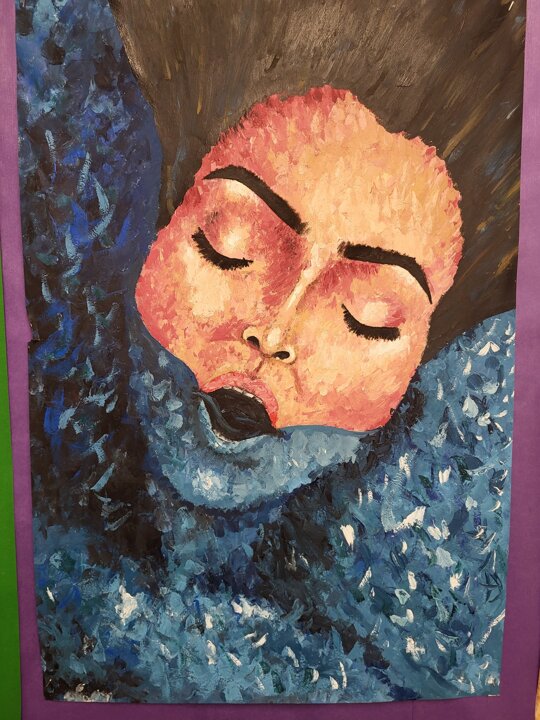
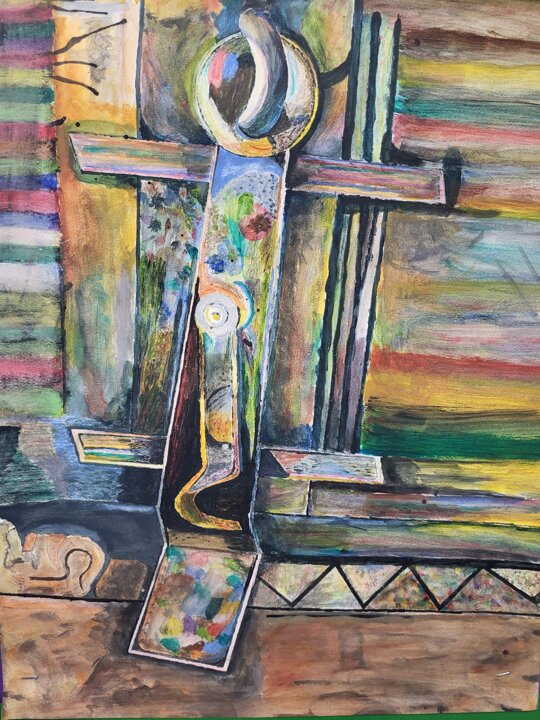


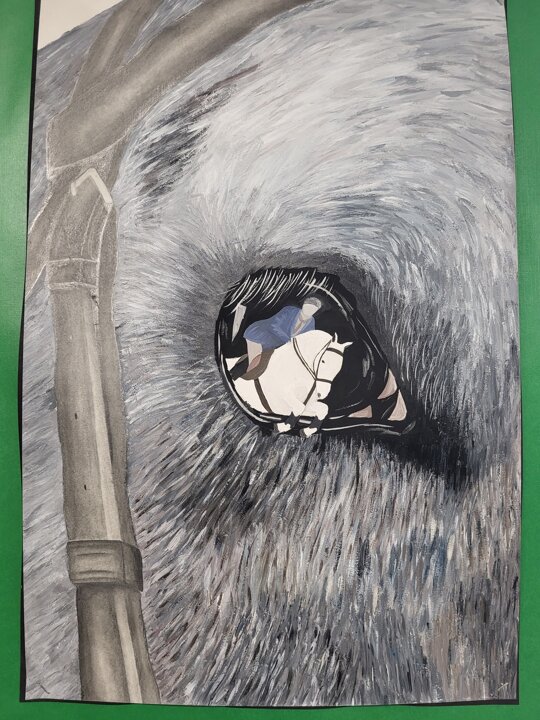
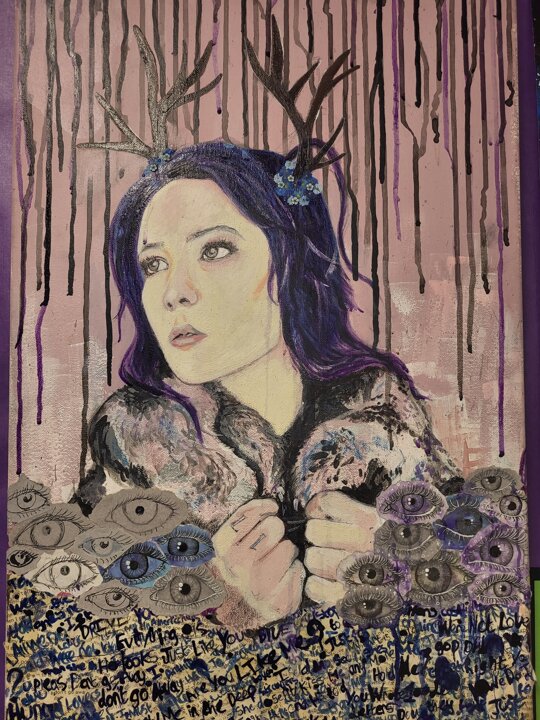

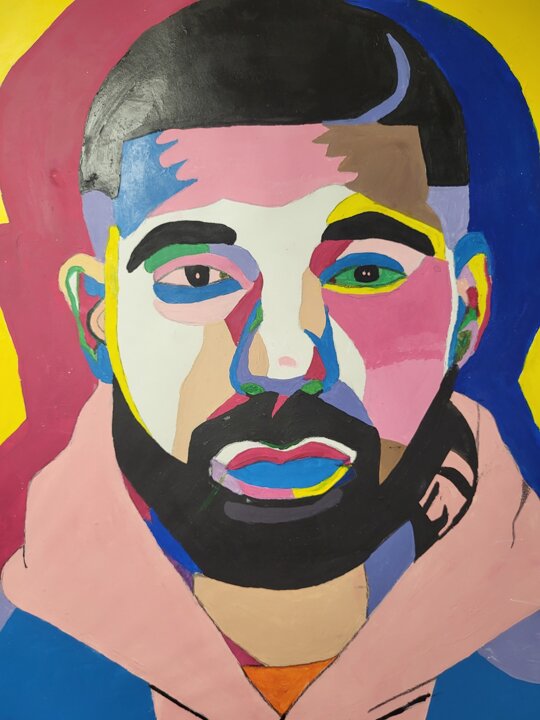


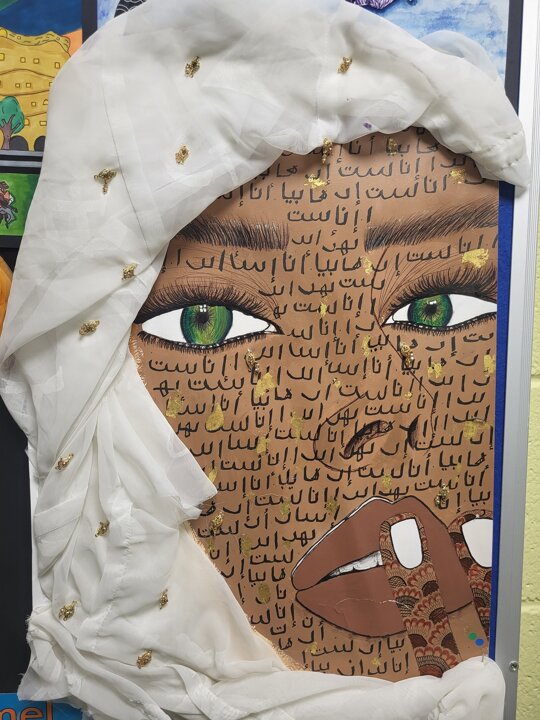
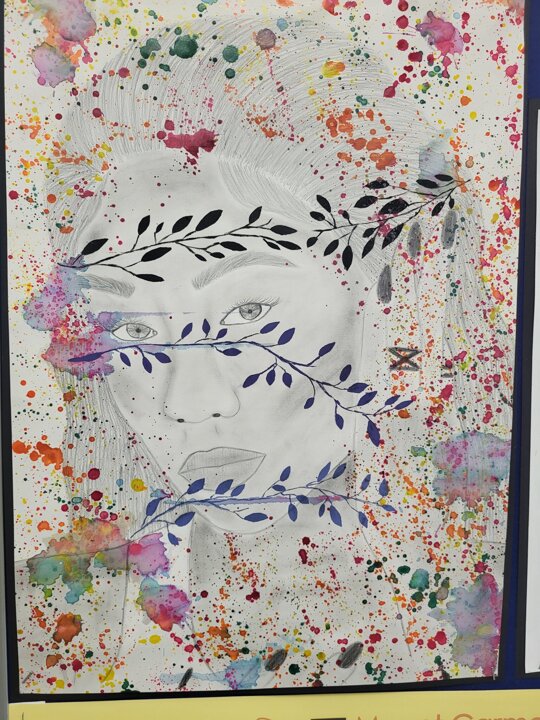

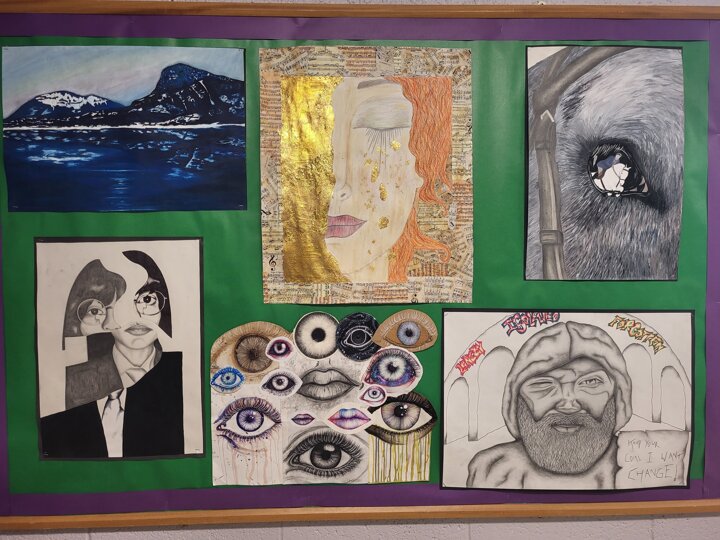
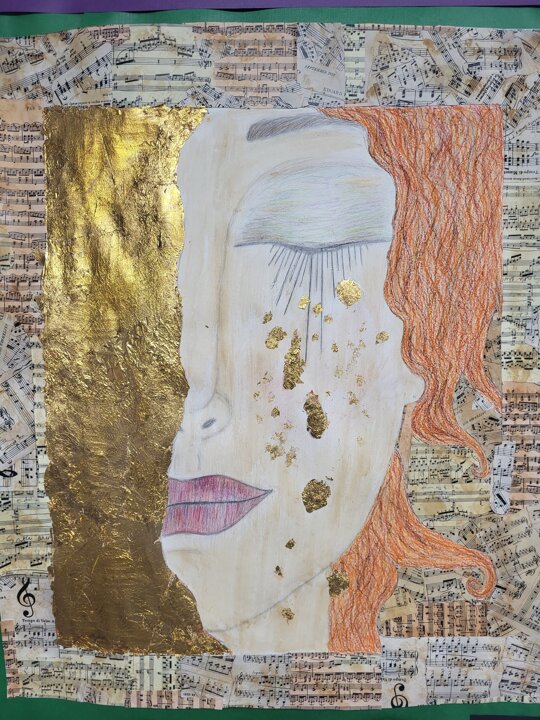
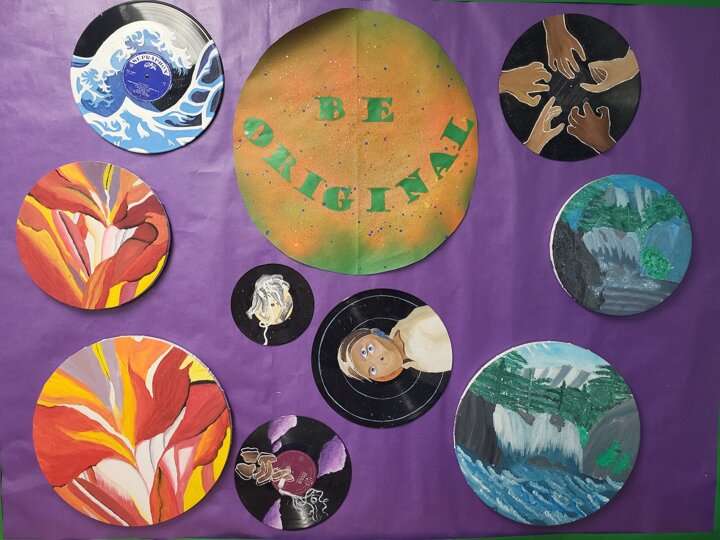
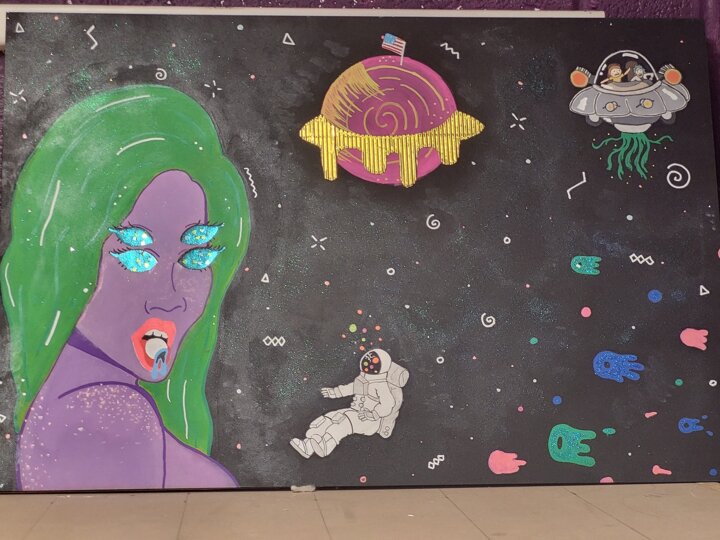
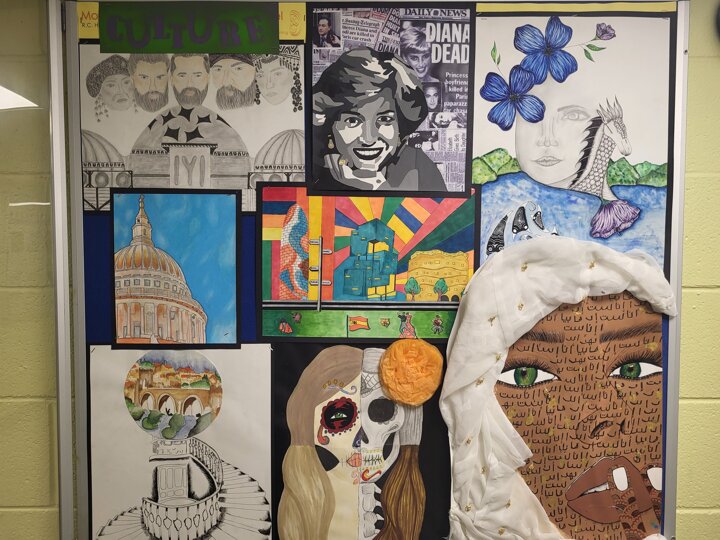
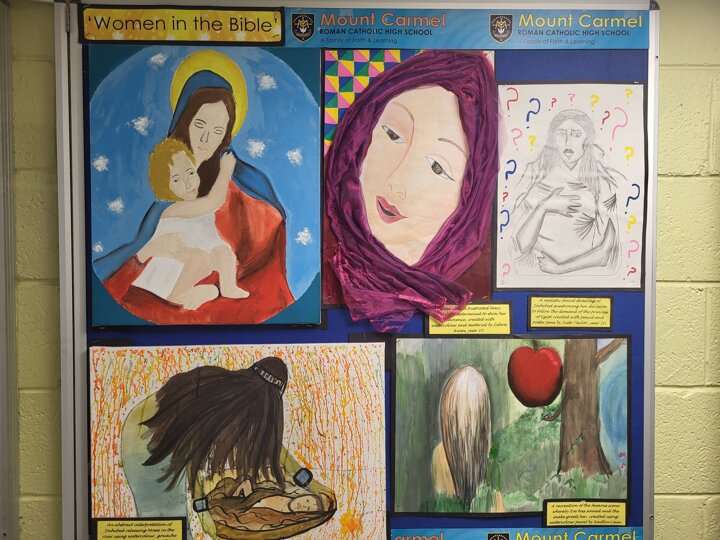
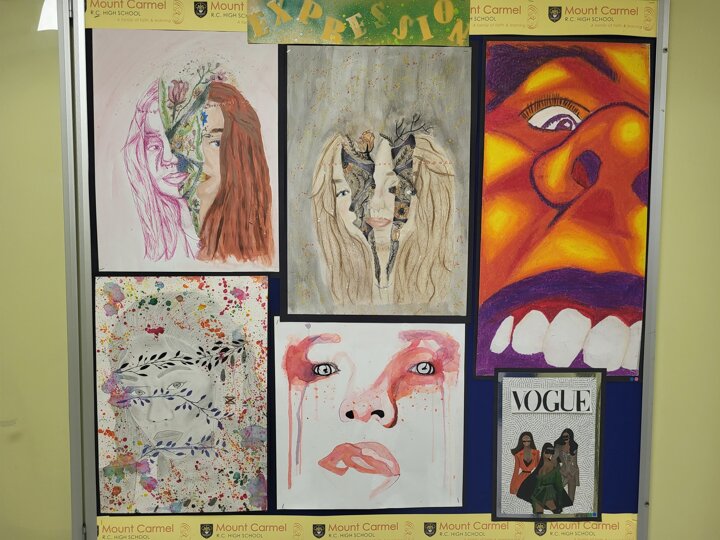
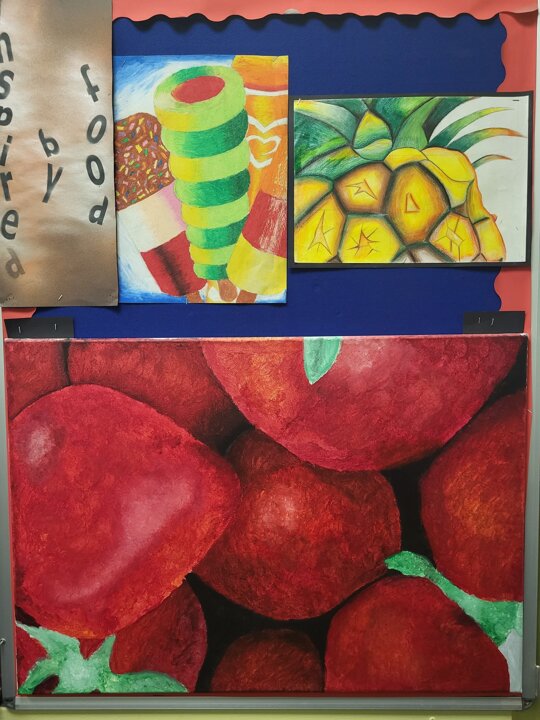
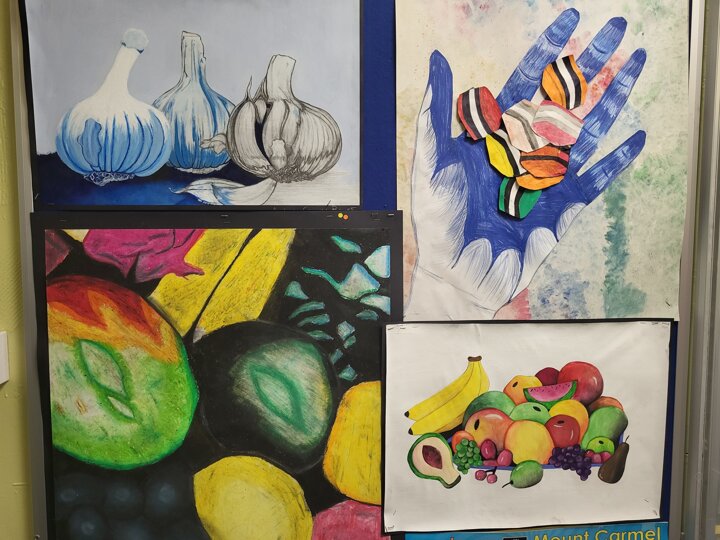
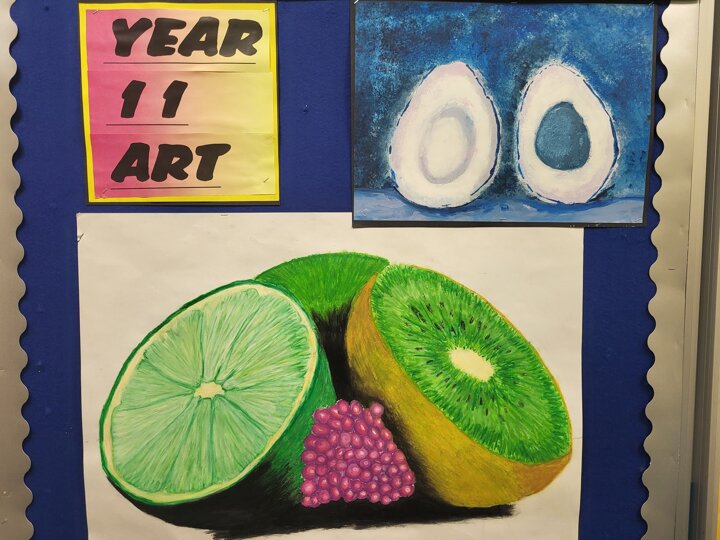

.jpg)